

Yacht Crew Salaries: Complete Guide to What Yacht Crew Earn
It’s no secret that the impressive yacht crew salaries attract most people into the exclusive yachting world.
Junior deckhands or stewardesses can earn starting salaries of $3000 per month. With a few years of experience and some courses to back you up, this amount moves up towards $4000-$4500 per month!
In order to compile this superyacht crew salary guideline, I have taken 10 of the top yachting platforms and used all of their data, combined with my personal experience, to reach an average salary expectation for each position.
Table of Contents
How Much do you Make Working on a Yacht?

Yacht Captain Salary
- 20m-30m: $4000-$7500
- 30m-40m: $5500-$9500
- 40m-50m: $8000-$15000
- 50m-70m: $13000-$19000
- 70m+: $16500+
Requirements of a Yacht Captain
- Years of experience needed: 3-5 years of experience as Chief Officer/Mate and more than 5 years of experience as a Captain for larger yachts
- Minimum level of Qualification: 200ton licence which allows you to drive vessels below 200tons
The Captain has the highest level of responsibility onboard the yacht and hence they earn the most out of all the yacht crew salaries.
Captains are accountable for the overall safety of the yacht, crew members and guests.
They also handle daily operations of the yacht, guests, and owner liaison. They deal with management companies, port control, budgets, human resources, and many more tasks and logistics that make the job demanding and stressful.
On top of this, Captains are required to hold high levels of certifications depending on the size of the yacht they are driving.
Yacht Captain salaries can sky rocket with higher levels of qualifications.
If you are looking to become a Yacht Captain one day I recommend looking into the courses required so you can get started with licenses and sea time. It takes time to get there, but when you do it will be worth it.

Chief Officer Yacht Salary
- 30m-40m: $4000-$6000
- 40m-50m: $4500-$7500
- 50m-70m: $5500-$9000
- 70m+: $8000+
Requirements of a Chief Officer
- Years of experience needed: 3-5 Years
- Minimum level of qualification: Officer of the Watch
The Chief Officer is second in command to the Captain and is responsible for carrying out the Captain’s standing orders.
On smaller yachts, the Chief Officer is referred to as the Mate.
The Chief Officer is responsible for carrying out the safety duties onboard and assisting in the bridge with paperwork and navigational planning.
The Chief Officer is also responsible for leading and managing their deck team, ensuring crew are following their duties as well as managing the water sports and guest activities.
The salary of a Chief Officer depends heavily on the license held.

Bosun Yacht Salary
- Years of experience needed: 2-3 years
- Minimum level of qualification: Yacht Master Offshore
- A yacht Bosun salary can vary between $4000 and $6000.
Responsibilities of a Bosun
The Bosun is essentially the Lead Deckhand onboard. A lead deckhand salary on a larger vessel will be similar to that of a bosun salary on a smaller vessel.
This is an opportunity to step up from being a deckhand and gain some experience in a leadership role. This position is in place for larger yachts so that when the Officer is busy with bridge duties, someone is in charge on deck.

Yacht Deckhand Salary
Years of experience needed: 0
- Minimum level of qualification: None needed, however Power Boat Level 2 and Yacht Master offshore will put you at a great advantage
- Entry-level yacht crew salaries start at $3000 and can go as high as $4000/$4500.
Responsibilities of a Deckhand
A Deckhand is an entry-level role on a yacht.
You need to spend a few years (or less) as a Deckhand in order to learn and gain experience so that you can step up in the ranks and obtain your licenses.
This role will be very hands-on in maintaining the exterior of the yacht. Duties will include cleaning, polishing, varnishing, sanding, caulking, and any other maintenance work required.
Chief Steward / Chief Stewardess Salary
- 30m-40m :$4500-$5500
- 40m-50m :$5000-$7000
- 50m-70m- $5500-$8000
- 70m+: $7500+
Responsibilities of a Chief Stewardess/Steward
- Years of experience needed: 3-5 years
- Minimum level of qualification: Depending on the size of the vessel you may need courses such as Food Hygiene and Safety, Silver Service, WSET, or a Purser course
The Chief Stewardess or Steward is responsible for all the interior operations of the yacht .
They are responsible for managing the interior team, and ensuring the interior of the yacht is maintained to the highest standards. Besides cleaning and laundry schedules , this also includes provisioning for crew and guests, budgeting, accounting, and training of junior crew.

Steward or Stewardess Yacht Salary
- Minimum level of qualification: Depending on the size of the vessel you may need courses such as Food Hygiene and Safety and Silver Service
- Salaries start at $3000 and go up to $6000
Responsibilities of a Steward or Stewardess
A Stewardess/Steward is an entry-level position working within the interior of the yacht.
There are rankings within the interior (2nd, 3rd, 4th Steward/Stewardesses). As you spend more time in the industry, you will be promoted to higher ranks, and with that will come a better salary and more responsibility.
This role covers a range of tasks, including but not limited to housekeeping, laundry, bartending, table scaping, floral arrangements, serving, and hosting guests.

Engineer Yacht Salary
- 20m-30m: $4000-$5000
- 30m-40m: $4500-$6500
- 40m-50m: $6000-$8000
- 50m-70m: $7500-$11000
- 70m+: $9000+
Requirements of an Engineer
- Years of experience needed: 2-4 years in an engineering role onboard as Deck/Engineer or relevant land-based experience
- Minimum level of qualification: AEC
The Engineer onboard is responsible for all mechanical functioning and maintenance of the vessel. This is a very technical role that can pay well as you gain experience and obtain your licensing.
Yacht Chef Salary
- 20m-30m: $4000 – $5000
- 40m-50m: $5500 – $75000
- 50m-70m: $6500-$9500
Requirements of a Yacht Chef
- Years of experience needed: 3-5 years depending on previous experience
- Minimum level of qualification: Food Hygiene and Safety Level 2
The Chef is responsible for feeding the crew 2 to 3 healthy and sustainable meals a day. They are of course required to prepare meals for guests when onboard to the highest of standards.
In their day-to-day tasks, they will be responsible for their own provisioning of the galley, maintaining stocks, cleanliness, and hygiene of the galley.
The salary of the Yacht Chef varies depending on qualifications and experience.

Yacht Crew Salaries for Private vs Charter Yachts
There are two types of super yachts that require crew: Private and Charter yachts. The salaries for yacht crew differ slightly between the two.
Private Yacht
A private boat is owned by a single person or family who uses the yacht for their own purposes. They don’t charter it out and you can expect to have the same guests onboard for the duration of your contract.
The benefit of these programs is that you get to know your guests well so you may find it easier to manage their wants and needs.
You may also benefit from traveling to off-the-beaten-track locations as I have!
For yacht crew working on these private boats, you will usually not receive charter tips.
Charter Yacht
A charter boat is one that gets chartered out by guests. This operates as a business and also means you will have different guests for every trip.
If you work on a charter boat you can expect to receive charter tips at the end of each charter. These are usually 10%-20% of the charter fee!
Considering these tips can be anywhere from $2000-$5000 per week depending on the size of the yacht, charter boats offer great earning potential and can skyrocket your salary as a yachtie.

Hi, my name is Lisa, a Chief Stewardess in the yachting industry with 10 years of experience, as well as 8 years of hospitality experience prior to that. Being in the yachting industry has been a whirlwind of adventure, growth, challenges and some of the best experiences of my life, and I am excited to share my knowledge and experiences with all of you.
How to Write the Perfect Yacht CV [With Template]
A day in the life of a yacht stewardess.
Back to Blog
Captains Careers Superyacht Industry Insights
What is the salary of a Captain on a superyacht? 4 May 2021
What should you be paying your Captain?
What salary can I expect as a Captain on a superyacht?
These are questions we often get asked at Quay Crew headquarters.
In this blog, the superyacht Captain salaries are revealed in our exclusive Captain recruitment survey by Quay Crew.
Captain Recruitment Specialist, Tim Clarke , reveals some very interesting findings…
The subject of what a Captain should be paid often comes up in conversation, normally with Captains, but recently I was working with the yacht owner on a large new build project and had to recruit everyone from the Captain down. I was asked “What should I pay my Captain?”. I had to advise on salary levels for the Captain position and this made me realise that there isn’t a lot of accurate information out there in the public domain.
So how much should a Captain on a superyacht get paid?
Recently I did a salary survey of Captains which went into significant detail regarding yacht size, program, leave, pay reviews, bonuses, flights and additional perks. 186 Captains responded so we had an excellent spread of data to work with. The full report is actually 41 pages long so this is just a brief summary of the most pertinent information.
Have a Captain recruitment requirement coming up or just want to see all the additional info? To receive a copy in your inbox, email [email protected]
The breakdown of qualifications across the 186 respondents was as follows:
26% Master Unlimited
68% Master 3000gt
6% Master 500gt
Private or Charter?
58% of Captains surveyed said they work on a purely private yacht. 34% on yachts which are a mix of owner use and charter so run commercially. Only 8% work on yachts which are purely commercial / charter programs.
Monthly salary averages for Captains on a superyacht
Average monthly salary for Captains with full rotation:
Under 39m n/a
40m to 49m €12.4k approx.
50m to 59m €11.4k approx.
60m to 69m €13.3k approx.
70m to 79m €14.5k approx.
80m to 89m €16.2k approx.
90m to 99m €18.4k approx.
Over 100m €19.3k approx.
Average monthly salary for Captains who are full time:
Under 39m €10.2k Euros approx.
40m to 49m €11.9k Euros approx.
50m to 59m €15.3k Euros approx.
60m to 69m €16k Euros approx.
70m to 79m €19.2k Euros approx.
80m to 89m €22k Euros approx.
90m to 99m €25k euros approx.
Over 100m €14.5k Euros approx.
Additional Captain salary facts…
When you compare rotational and full time salaries on yachts over 60m, the full time positions average over 2k a month more. Some yachts’ Captain packages are hugely removed from the norm. For example, one 60m to 69m is found to be paying over 25k to a full rotation Captain. No yacht that responded under 39m offers rotation. 36 Captains are earning over 20k a month, the vast majority of which are on purely private yachts.
Captain Rotation
23% of Captains on yachts 40m-49m have a full rotation. This takes a big jump to 53% of yachts 50m -59m. Full rotation peaks at 83% on yachts over 100m.
The average is 63% of Captains on yachts above 50m have full rotation so 92 out of the 147 who worked on yachts from 50m to 100m up.
Captain Recruitment for Superyachts
If you are looking to recruit a Captain for your yacht and want to make sure you are accessing the best talent in the market, then give me a call on +44 7760 202610. Recently I have recruited a variety of Captains for various yachts including a 100m plus new build, a very prestigious 90m, a 60m plus new build just launched and lots more between 50m and 70m. Alternatively if you just want a chat about the Captain market and your current Captain’s compensation package, then just get in touch via phone or via my direct email .
If you are a Captain reading this then here are a couple of links to other blogs I have written which may interest you.
How to secure your dream Captain job on a superyacht
How many Captains are there?

About the author
How much does length of service matter in Superyacht Recruitment?
Oow unlimited: is it for me.
- Superyacht Recruitment Services
- Superyacht Captain Recruitment
- Partnerships
- Meet the Team
- Work for Us
- Current Vacancies
- Crew Resources
- Candidate Login
- Candidate Registration
- Client Login / Register
- Candidate Login / Register

Yacht Crew Agency / Candidates / Yacht Salaries Guide
Yacht Salaries Guide
Many of our candidates are asking us for advice on what their salary should be on a yacht.
We have prepared a table of approximate wages in the yachting industry. Even though these salaries may give you a reference point, we would like to inform you that all yachts are different, equally as their owners.
These salary rates are based on the current state of the employment market in yachting in 2024. Real wages always vary depending on the candidate’s experience, training, certificates and additional skills.

Different Salaries of Yacht Crew Jobs
People working on a yacht can earn extras.
Tips are another big financial reward for the team of the superyacht to be rewarded. Specially operating on a charter yacht gives crew a great chance to earn extra money, but how much is expected? It is up to it. Common tips vary from 5% to 20% of the charter cost, sharing about 10% and split by all crewmembers.
Living on a private yacht cannot provide all such advice, but it has its own crew benefits, including greater rest, longer vacations, rewards and also the prospect of the owner’s unexpected donations. Such proprietors are often considered to tip.
Different Position in a Yacht Crew, Different Salary
Without a doubt, each position has a different monthly income. So the higher position you will get the higher salary you will get. Here are an overview about some positions on a yacht.
The Captain must be skilled and trained in maritime affairs, outstanding navigational knowledge, exceptional administration, coordination, strategy and diplomacy. A Superyacht Captain will have outstanding nautical expertise, repairs, electronics, professional procedures and accounting, Finance and administrative records knowledge. A captain must have a cool, charismatic demeanor and must be exceptionally competent to work with men, staff and visitors. Average monthly salary : 60ft (18m) à 2,200€ – 3,700€
During the captain’s absence, the Chief Officer / First Mate will have the captain’s good management and interpersonal abilities and outstanding experience and procedures in ISM and ISPS. The CEO will be someone with a solid history in deck work from prior practice with Deckhand or Boson. Average monthly salary : 60ft < 75ft (23m) à 2,200€ – 3,000€
Under the command and control of the commander, the chief steward must perform his or her duties. The head chef may therefore train and prescribe some lower level stews under his command, as the sole responsible for the interior of the vessel and for offering a satisfactory hospitality service to fulfill the holidaymakers ‘needs. Excellent support, networking and management are a must, as is an innovative environment. Average monthly salary : 100ft (33m) – 140ft (43m) à 2,200€ – 3,000€ +
Morgan & Mallet Yacht Crew Agency helps all yachting professionals find the best job and create a career in yachting
By clicking “Accept All Cookies”, you agree to the storing of cookies on your device to enhance site navigation, analyze site usage, and assist in our marketing efforts.
Hire and Find Experienced Yacht Crew staff
This form is for employers who are looking to hire crew only.
You want to talk to a recruiter to help you personalise your recruitment. Choose a date from the list of available appointments and let us guide you.
Click one of our contacts below to chat on WhatsApp

Social Chat is free, download and try it now here!
Insert/edit link
Enter the destination URL
Or link to existing content
- Yachting for beginners
- Owning a yacht
- Motor Yachts
- Sailing Yacht
- Indian Ocean
- Mediterranean
- Buying or Selling a Yacht
- Yachting Events
- FAQ – Luxury Yacht Charter
- FAQ – Buying a Yacht
- FAQ – Sell your Yacht
- How Much Does It Cost To Charter A Luxury Yacht?
- All our Blog Post & News

Yacht crew positions : Hierarchy, Missions & Salaries explained
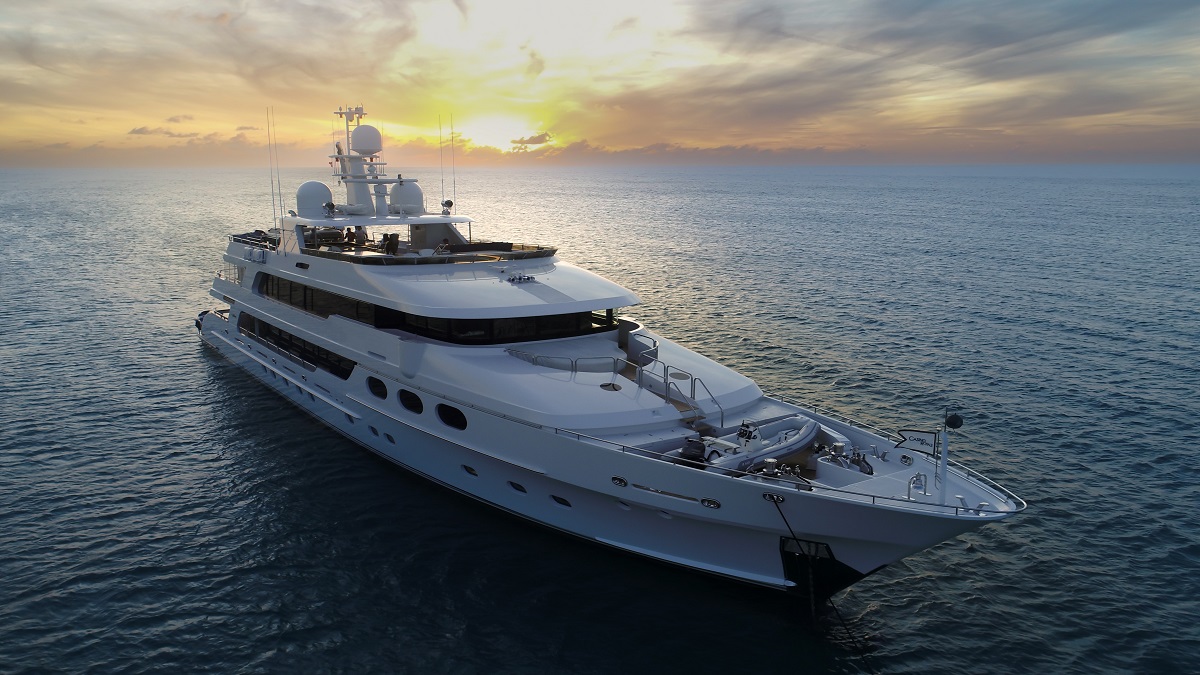
Like any well-run hotel, restaurant, or other luxury service, a crewed yacht needs organized structure and good management. Whether you’re staffing your own luxury vessel or looking for an exciting career working and traveling the world, you need to know how this structure works, and what you can expect to pay or earn and do in the various roles on board.
Every yacht is a little different, and organization may reflect the style of the captain or the demands of the owner. But the same jobs need to be done on almost every boat. Organized with ranks, heads of each division report to the Captain. It’s not a military-style organization, but there are parallels with merchant marine grades and structures.
Smaller yachts need fewer crew, and staff may wear multiple hats that cross more traditional divisions and may combine some jobs with others. Large yachts have more distinct divisions or subdivisions, with more specialization to divide tasks and manage staffing. The core skills are the same, but finding staff with the right blends to do the jobs is key. Crew with broader skills are highly sought after.
As a yacht owner, you shouldn’t have to worry about day-to-day management decisions or organizing all this. That’s why you have a captain, and it’s better to leave staffing decisions entirely up to him or her. But it’s still important to know what it is people you’re hiring do, why they’re there, and how many you need. You don’t want too many crew, or to be short-handed. An understanding of what your yacht needs helps you talk to the captain to keep your yacht running how you want it.
For those looking to break into yacht crew work, consider your skills and strengths, and what jobs appeal to you. You’ll need training before you work, and you can direct your job path through the training you seek. Your goal is a suitable position on a well-run yacht, so make yourself the most attractive candidate possible.
Yacht Work Life
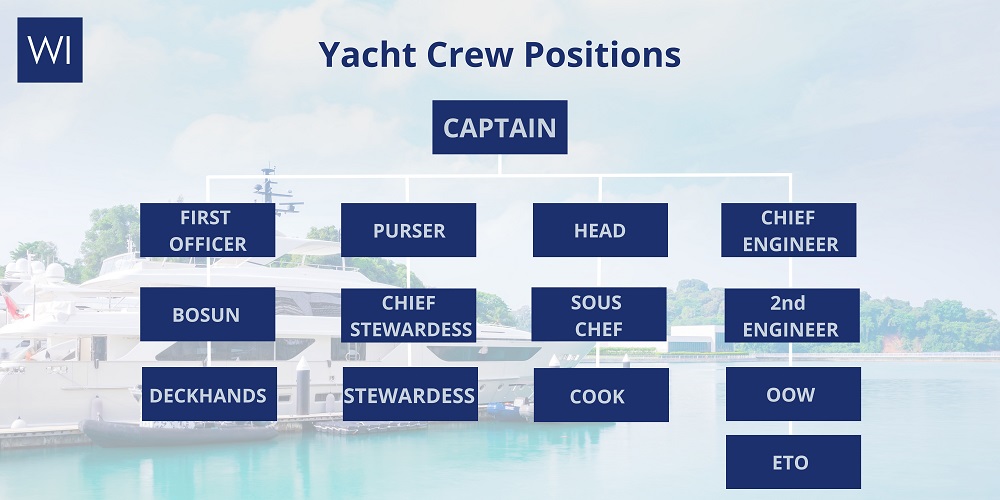
Working on a yacht is also living on the yacht. Crew must have a space to sleep, food, and all the basics that any employee needs. Large yachts have space reserved for crew, and owners looking for quality crew should provide good working and living conditions. Your crew takes care of you, and you should take care of them.
Depending on where a yacht operates or what flag she flies, a variety of labor laws or rules may be in effect. These requirements may be for work visas, contracts and written agreements, and compliance with merchant and ship crew treaties and laws. Be prepared to have work and non-disclosure agreements between yacht and crew, though a few yachts skip this.
Seasonal Jobs
Many yacht positions are seasonal. Year-round employment is more likely for senior crew like the captain and department heads, but not all yachts see year-round use. And some yachts may use different crew in different locales between seasonal moves.
Any job listing should give seasonal information, with geographic information, the length of the season, and the prospects for year-round positions and repeat employment.
Hours, Salaries, and Expectations
Yacht crew is a service job at its core, and every yacht owner is looking for service-oriented people who understand how to deliver a hotel-quality living and restaurant-quality fine dining. Work experience in luxury hotels and restaurants is a big plus for some jobs, and makes breaking into yacht work easier.
Yacht work can be very demanding, with periods of intense work when the owner and guests or a charter party is on board. Long days aren’t uncommon, but often balance with slack time when the boat is empty of passengers. There is always work to be done, but there’s usually a chance for time off.
Most salaries are monthly, since many positions are seasonal. Pay ranges are commensurate with experience, rank, and responsibility. Private vessels usually offer higher base pay, as charter crew can earn tips on top of their base salary. Because of the demands of the lifestyle, compensation is good and you have minimal living expenses on board.
Benefits and Time Off
Because so many jobs are seasonal and may occur in different countries and locations, benefits offered to yacht crew vary widely. But it is not uncommon for crew to be offered health and accident insurance and a flight to the vessel. Living on board, you’ll get food, rooming (usually shared), basic toiletries, uniforms, and laundry. Yachts with a longer view may offer additional training to long-term prospects.
Time off is usually linked to boat use, and may be sporadic in-season or when the boat has the owner and guests on board. There will always be some time off, but it may be between very intense work periods.
Most crew jobs have an employment contract that meets the Maritime Labour Convention 2006 (MLC). This should spell out the contract period and duration, as well as salary, leave and time off, probationary periods, repatriation policies, and any other crucial details to meet the minimum international standards of crew welfare.
This contract should also contain shipboard policies on confidentiality and non-disclosures, drug and alcohol use on board, personal hygiene expectations, interpersonal relationships, and dispute resolution. Job expectations and requirements can also be included, with specific language about roles, tasks, and cooperation between divisions.
Note that all crew agreements will explicitly prohibit drug use on board, most limit alcohol consumption and ban hard liquor on board, and many boats have policies prohibiting intimate personal crew relationships. Because the crew is living on board full time and in close quarters, rules to maintain decorum and crew harmony may be in writing.
Training & Certificates
Two key certifications are required for yacht crew. Employers look for the STCW (Standards of Training, Certification and Watch-keeping for Seafarers) and the ENG1 (Seafarer Medical Certificate). Insurers generally require crew to have these two certifications or the equivalent.
The ENG1 isn’t a class. It’s a medical exam to ensure that the crew is physically fit to serve at sea and has no underlying conditions that may arise far from help. It’s best for prospective crew to secure the ENG1 before investing more time and money training.
STCW is a week-long class on the basics of onboard safety. This includes hands-on modules covering personal survival, fire safety, first aid and CPR, accident prevention, and security awareness. It needs to be refreshed every five years.
Shared, Hybrid, and Crossover Jobs
Larger vessels will have more defined duties and specific areas of responsibility. But smaller yachts may want the crew to have different roles in different situations. For example, a hybrid job description may read “3rd Engineer/Steward” and describe a role in engineering when the boat is empty but on inside crew when passengers are on board.
When hiring or seeking jobs be prepared to look for creative crossover skill sets to meet the needs of the vessel.
Extra Skills and Duties
Any extra skills outside the regular duties makes crew more attractive. From stewards who can teach yoga, give massages or play cocktail piano to deck crew who know how to water ski, SCUBA dive, or fish, anything that crew can bring to enhance the passenger experience adds value to the employee.
If you’re looking for a position, list the skills you’d be comfortable using. If a vessel owner is looking for something specific, spell it out and figure out how that special duty fits into the employee work day.
The Four Main Divisions

Most yacht crews break into four primary divisions which group related tasks and responsibilities together. While the grouping sounds like it’s by section of the boat, they’re really more functional. For example, stewards (Interior) will definitely serve meals, whether they’re in the main dining room or out on deck. Deckhands (deck) are going to be involved in painting, sanding, and varnish jobs anywhere on the boat.
The deck crew handles most of the exterior operations of the yacht, and runs it. Deck hands and crew keep the boat looking clean and shiny, and handling most vessel operations. This includes driving and operating the yacht, navigation, running all launches and ship’s craft, handling lines, and all maintenance and painting, washing, and shining.
2-Interior (or Inside)
Inside crew are primarily the stewards and housekeepers. Larger vessels will have a dedicated housekeeping staff separate from the stewards, but smaller vessels may not.
Stewards keep the interior clean, do all housekeeping, laundry, food and beverage service, cabin preparation, and anything else needed for the comfort of the passengers.
3-Engineering
Below decks, the engineering department ensures the safe and smooth running of all the ship’s machinery and electronics. Engineers are engine and systems specialists, and there will usually be a dedicated electronics expert. Most engineer jobs require professional training and certification.
Fine dining is a hallmark of the yachting experience, and a full-time galley crew prepares all meals for passengers and crew. The head chef plans the menus and provisions the boat, while junior chefs assist the head chef with meal preparation and keeping the galley spotless.
Yacht Job and Department Details
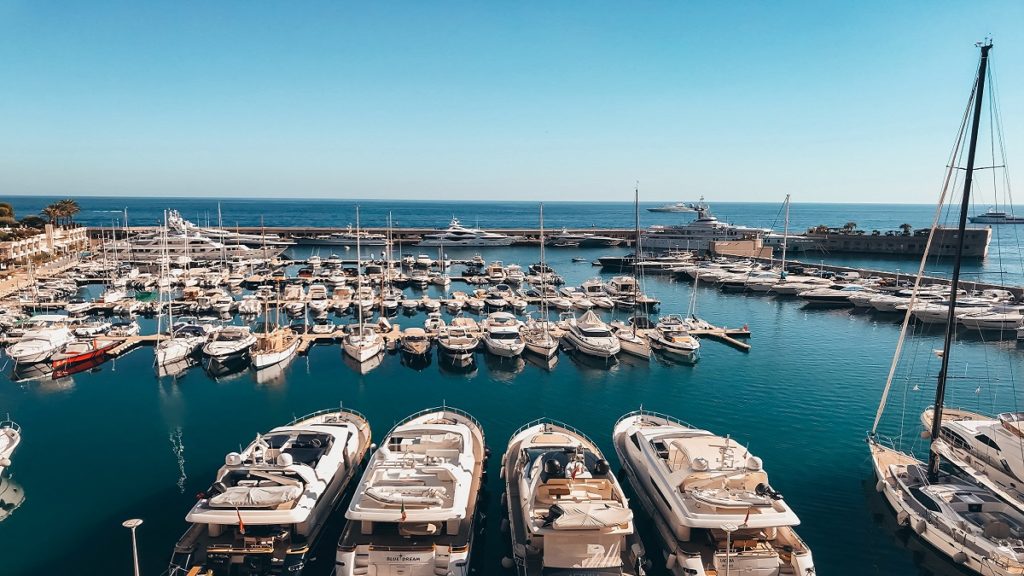
Departments are all organized in a hierarchy, with a department head reporting to the Captain. The clear chain of command makes for smooth operations, with all communications going up and down ranks. Junior staff will occasionally take instructions from other divisions as all crew is expected to help as needed. A captain or department head may organize staff differently, so reporting structures listed are guidelines only.
All salary ranges are monthly figures and are ranges based on yacht size and crew experience. Senior jobs on larger yachts have more responsibility than the same job title on yachts with smaller crews. Experienced crew are very desirable and can expect more pay for their positions.
Listed responsibilities are not exhaustive, and different yachts may allocate some jobs to different positions.
Read also: The yacht charter experience ladder
The Captain

The captain of the vessel is the overall decision maker for the yacht in all situations, including the safety of the vessel. The owner should leave the Captain responsible for operational decisions about hiring and staff and operating the ship. To become a captain requires years of experience and training, and a broad set of skills including yacht operations, personnel management, budgeting and finance. The captain works directly with the owner and owner’s representative, if the captain is not also acting as the representative.
On an organization chart, the Captain is usually placed in the deck division, but the Captain is always the senior-most crew on the yacht and all division heads report to the Captain.
Responsibilities include:
- Responsible for all navigation and running the yacht.
- Senior decision maker on all crew hiring.
- Manage repairs, refits, and yard work.
- Manage budgets and accounting. On larger yachts, this task ends more on the Purser, but the captain is always responsible.
- Ensure all paperwork, clearances, and legal requirements are completed.
- Primary contact with the owner or charter parties.
Reports to: The yacht owner
Salary Range: $6,000 to $22,000
The deckhands handle all the outside responsibilities of the ship, including cleaning and maintenance of the yacht and all the ship’s vessels and toys on board. Deck crew will have significant contact with passengers in this role, operating launches and delivering guests to and from shore and handling the toys.
All deck crew have watch responsibilities on passage, and daily responsibilities keeping the yacht pristine and clean. They will also do line handling and secure the yacht.
Deck department : Chief Mate/First Officer
The Chief Mate or First Officer is the second in command of the vessel, and left in charge when the Captain is not on board. The first mate has the requisite skills to stand in for the captain and run the yacht if needed and usually acts as the division head of the deck team.
The seamanship skills needed are similar to the Captain’s position.
- Primary safety officer for the yacht and all passengers and crew.
- Supervise and manage all operations on deck.
- Bridge watches on passage.
- Passage planning and navigation.
There may be additional mates on larger vessels, these 2nd, 3rd, etc. mates have similar responsibilities on rotation. But the first mate is senior and always second in command.
Reports to: Captain
Salary Range: $4,000 to $9,500 (First mate)
Second and more junior mates may earn $2,000 to $4,000
Deck department : Bosun
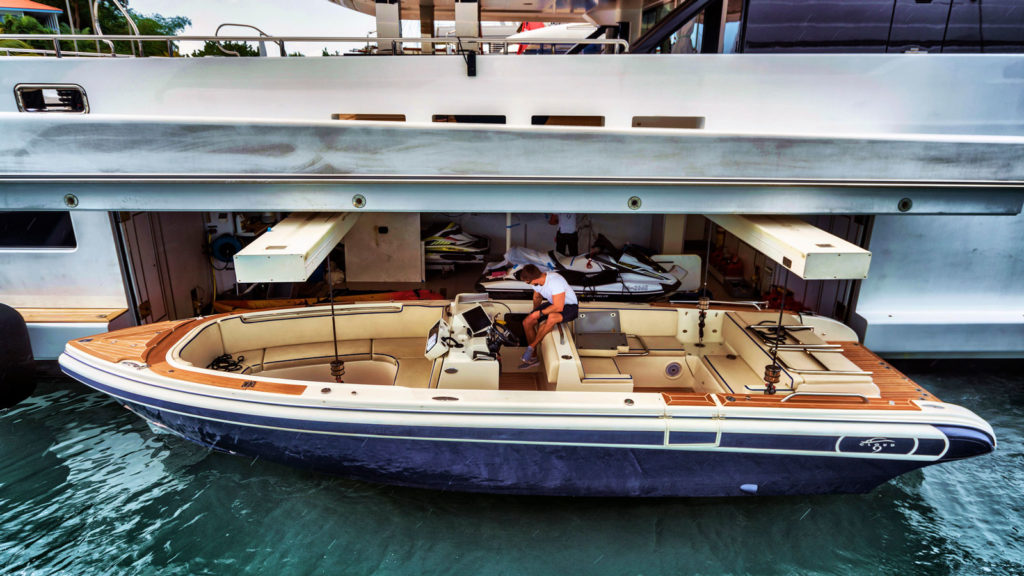
The Bosun is the senior deckhand and manages the junior hands on board. This will usually be the most experienced hand on board.
- Organizing all operations on deck.
- Coordinating the use, storing and launching of the ship’s boats, toys, and equipment.
- Managing the passerelle, watching passenger safety.
- Contact point for guest service on boats, toys, and trips to shore.
Reports to: First mate
Salary Range: $3,000 to $5,000
Deck department : Deckhands
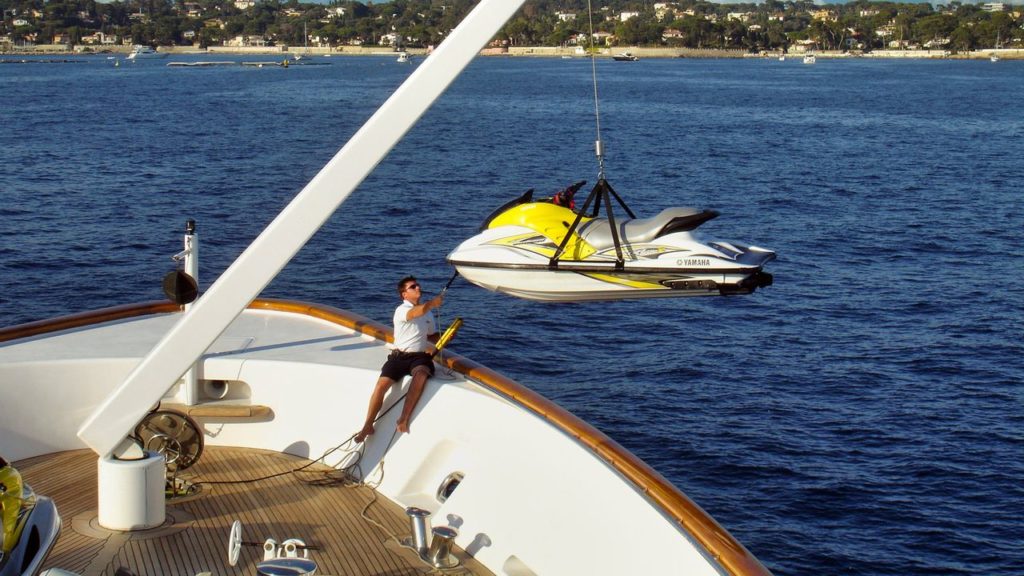
Deckhands are constantly busy with maintenance, cleaning, polishing, and assisting guests as needed. They will assist other departments as needed or given special duties.
- Daily cleaning of the yacht’s exterior.
- Painting, varnishing, polishing.
- Line handling.
- Launching and operating dinghies and tenders.
- Repairs and carpentry.
- Helping guests as needed – everything from handling baggage and gear to embarking and disembarking.
Reports to: Bosun
Salary range: $1,300 to $3,000
Though every position on a yacht is service-oriented, the interior or inside crew provides the primary customer service. They will interact the most with the passengers daily, and they’re directly responsible for the quality of their experience on board.
Interior department : the Purser

The purser is the chief financial officer of the yacht and handles all the financial operations on board. Accounting, purchasing, payroll and hiring, and all money matters end up with the Purser. This is a senior staff position, and may be the interior department head. Smaller yachts may eliminate the purser’s job and add it to the captain’s and other senior staff duties.
Responsibilities Include:
- Accounting and bookkeeping for all financial transactions.
- Human resources and payroll.
- Handling logistics for all departments related to purchasing.
- Managing contracts.
- Event coordination, including off yacht bookings and payments.
- Primary administration of the boat’s business paperwork.
- Inventory and supply management.
Salary Range: $4,000 to $8,000
Interior department : The Chief Steward/ess

The chief steward or stewardess has primary responsibility for all service roles inside. Food and drink service, cabin preparation, and anything to do with helping the passengers be more comfortable and enjoy their stay. The chief steward will be inside crew with several years of experience.
The chief steward manages the interior staff, setting and enforcing vessel service standards. The chief steward ensures the crew delivers a five-star hospitality experience.
Chief Steward Responsibilities:
- Scheduling and training junior crew for meal and drink service and cabin preparation.
- Primary contact with guests for meals and drinks.
- Sommelier and wine service.
- Coordinate with the galley for meals and presentation.
- Decorate the interior, from flower arrangement to table settings.
- Arrange onshore activities and outings.
Reports to: Captain or Purser, depending on the yacht
Salary Range: $4,000 to $8,500
Stewards/Stewardesses
The stewards and stewardesses are the primary guest service staff. They will work closely with guests and passengers, and have daily contact with them as they meet most of their needs while on board.
Steward Responsibilities:
- Food and drink service.
- Room preparation and turndown service.
- Cleaning, polishing, housekeeping, and inside maintenance.
- Cabin detailing.
- Laundry, pressing, and folding.
- Help with outings, trips, debarkations.
Reports to: Chief Steward
Salary Range: $1,500 to $4,500
Housekeeping

Larger yachts may have a dedicated housekeeping and laundry staff. This will be part of the inside crew, under either the purser or the head steward. There may be a senior housekeeper, if there are more than one housekeeping crew on board.
Responsibilities are the cleaning and laundry portions of the steward’s job, and a laundry steward may spend most of her time inside the ship’s laundry.
An experienced Head of Housekeeping may earn from $4,500 to $7,000, while a Laundry Steward typically earns from $2,500 to $3,500.
Read also: CAN OWNING A YACHT TO CHARTER (REALLY) BE PROFITABLE?
Food service requirements on any yacht are high. Whether it’s a privately owned vessel or a charter, the expectations are always for top tier food service, with a variety of meals planned for the requirements of every passenger. Chefs and cooks prepare all meals on board for passengers and crew, but sometimes other interior crew may help with prep work or cleanup.
Smaller yachts have smaller galley crews, but the largest vessels may have an executive chef and several sous chefs. All chef positions require formal culinary training and experience, but cook positions are often entry level. Promotion from cook to chef is unusual without additional training.
Galley department : the Head / Executive Chef

On larger yachts, an Executive Chef will run the entire galley with the help of sous chefs and cooks. With an Executive Chef, there’s an expectation that the food and menus will be on a level with Michelin star-rated restaurants.
The executive chef brings a thorough understanding of food preparation and presentation, and moves food preparation past creative up to artistic. Job responsibilities are similar to a chef, but the job demands and the required experience and education are much higher.
Salary range: $7,000 to $11,000

The chef has overall responsibility for all meals on the yacht, from provisioning in remote places to hygiene and good safety. If there’s only one chef, she’s the head of the galley crew. Finding the best provisions in far away locations and making the best of local food availability is a major part of the job.
- Planning a delicious and varied menu for passengers.
- Sourcing all food and arranging transport to the yacht.
- Maintaining and operating within the galley budget.
- Preparing passenger meals with professional presentation and style.
- Cleaning and maintaining galley and galley equipment.
- Deliver menus and meals on time, while running an organized and spotless galley.
Galley department : Sous Chef
The sous chefs assist the chef in all aspects of running the galley, and may have independent assignments to plan and guest and crew meals. While not primarily responsible for provisioning, the sous chef will help with food selection, menu preparation, and planning. A sous chef must have formal culinary training.
Reports to: Head chef
Salary Range: $3,500 – $6,000.

Galley department : The Cook
Cooks may be entry-level positions or experienced, but do not require formal gastronomy education. They will assist the chef and sous chefs, cooking meals and dishes for guests and crew, helping with provisioning, and keeping the galley neat.
- Assist with provisioning and buying high-quality food from local sources.
- Follow all food handling and safety guidelines.
- Assist the head chef as needed, taking direction and guidance.
- Prepare guest and crew meals as required.
- Staying on top of galley inventories and supplies.
Salary Range: $2,500 to $3,500
Engineering

The engineering department keeps the yacht and all its systems working. Whether it’s the engines, electronics, air conditioning, or the plumbing – it’s up to engineering to keep it running.
There is considerable overlap with commercial shipping in the engineering field, as many of the same skills apply. And there is a broader range of qualifications and grades based on the size and power of the vessel. Job ratings may be set by required experience based on tonnage of ship or power of engines, with corresponding levels of pay and responsibility.
Unlike commercial shipping, engineers may get involved in other aspects of running the yacht, like helping with docking and water sports with mechanical toys.
Engineering certifications, training, ratings, experience and licensing are critical to hiring competent engineers, and for engineering crew it’s an important facet of career advancement. This is important for Chief and 2nd Engineers, which are often broken out by MCA (U.K. Maritime and Coastguard Agency) rating or other international equivalent.
MCA ratings for engineers Commercial and Private Yachts over 24m are:
Y4: Less than 200 Gross Tons and less than 1,500 kW engine power Y3: Less than 500 GT and 3,000 kW Y2: Less than 3,000 GT and 3,000 kW Y1: Less than 3,000 GT and 9,000 kW
There is also an unlimited rating for merchant vessels larger than the Y1 category. For discussing salary and responsibilities, we will include all ratings in one position description, but pay scales with the size of the yacht and any required higher ratings.
Chief Engineer
The chief engineer manages all aspects of keeping the yacht and its systems running. The chief engineer manages all the engineering staff, and directs all maintenance, repairs, troubleshooting and upgrades. This is a management position, but requires extensive hands-on technical experience and knowledge. Chief engineers on large yachts hold an MCA Y1 or Y2, smaller boats will have a lower rated chief and a smaller staff. Check Jooble.org to find abroad marine engineer vacancies.
- Provisioning, shopping, and stocking.
- Preparing passenger and crew meals.
- Following instructions and cooking under the direction of others.
- Galley cleaning.
- Follow food safety and storage procedures.
- Food pre-preparation.
Salary Range: $6,000 to $15,000
2nd Engineer
The second engineer is also a highly skilled position requiring a rating or license and several years of experience. This senior level engineer also needs knowledge of how to troubleshoot and maintain all yacht systems.
- Maintain and manage all engineering operations.
- Hire, train and supervise all engineers.
- Project manage all upgrades and retrofits, including managing budgets, contracts, and suppliers.
- Coordinate maintenance schedule for the entire yacht around the usage and seasonal schedules.
- Maintain costs and accounting for engineering operations.
- Design and handle all safety operations.
- Set and maintain standards for operations and cleanliness in the engine room.
Reports to: Chief engineer
Salary Range: $5,500 – $10,000
OOW (Officer of the Watch) Engineer
The OOW is a junior engineering position, but still licensed. There are two categories of OOW – MEOL (Marine Engine Operator License) and the more junior AEC (Assistant Engine Course). The overall responsibilities are similar, working to support the senior engineers and handle independent assignments. The AEC rating is entry level for licensed crew, but has training and certification.
- Support the chief in all projects.
- Maintain a clean, safe engine room.
- Perform all maintenance, troubleshooting and repair tasks as needed.
- Support motorized water sports.
- Occasionally assist with other vessel operations, like line handling.
Reports to: Chief Engineer
Salary Range, MEOL: $4,500 to $6,000 Salary Range, AEC: $2,500 to $3,500
Electronics/Technology Officer (ETO)
The ETO takes responsibility for all audio-visual and information technology on board. Ensuring passengers have access to the internet, movies, television, and music is a primary responsibility. This position carries a fair amount of passenger interaction, and an ETO needs good troubleshooting skills to go with customer service skills.
- Ensure all audio/visual and entertainment systems are always available for passengers.
- Assist passengers with personal technology and ship systems as needed.
- Conduct regular maintenance and upgrades of the network, information, and A/V systems around passenger schedules.
- Assist other engineers as needed, especially with electronic systems.
- Contribute as needed with other departments for boat and passenger operations.
Salary Range: $4,000 to $9,000
Junior Engineer
This is a lower or entry level position for someone with engineering skills but without formal licensing or certification. The junior engineer will help with safety and cleanliness, and assist in any engineering tasks as needed. The ability to solve problems and fix things opens this spot for anyone capable and willing to do the job.
- Help with cleaning, maintenance, and safety functions.
- Help anywhere needed on the yacht.
- Assist senior engineers as needed, taking direction and following instructions exactly.
- Constantly develop skills.
Read also: IS BUYING A BOAT A BAD IDEA?
Whether you are a yacht owner or considering entering this dynamic industry with an established and reliable crew, it is essential to have an understanding of the yacht’s hierarchical structure, mission priorities, and salary expectations. By doing your research on the complexity of yachting before hiring your team, you can confidently select the right group of experienced and qualified professionals for your needs. Staying up-to-date on top industry trends and knowing the capabilities of each type of yacht crew position will enable you to make sound decisions that support a safe and cost-effective journey. With quality personnel at your helm, you can cruise unhindered in luxury and explore new destinations with peace of mind.
Fractional Yacht Ownership : Everything you Need to Know
What is the best country to register your yacht offshore, you might also like.

5 Price Levels for Yacht Charters: Which Experience Can You Afford?

Windward Yachts Launches WhatsApp Channel for Latest Updates

What differentiates a yacht from a superyacht or a mega yacht?
Essential Guides
Ocean Mapping
New to Yachting
How to use the data presented here
The table has been drawn up with the information collated with figures from the past year within various yacht departments. Please note that they an indication only of starting salaries and the actual salary will vary depending on multiple factors.
Many elements need to be taken into consideration with regards to yacht crew salaries and not just the size of the yacht. The type of yacht (motor or sail), its usage (private, charter or both) and cruising schedule will influence the salary offered. Additionally, key elements of the candidate’s profile must also be reviewed, what is their previous experience, how long have they been in a particular role, have they recently acquired a new qualification, and do they have a specialised skill set that will influence the salary negotiation?
The highlighted section corresponds to yachts who offer a scheduled leave or rotational package.
Salaries here need to be modulated in accordance with the type of rotation offered, 5:1; 3:1 or 2:2 for example. There may be several different rotational schemes on a particular yacht, 5:1 for the junior crew, 3:1 for the intermediary position and full rotation for positions of responsibility.
The rotational salary is generally only a reduced monthly reduction (between 10 and 20%) and allows for a larger pool of candidates who are fully committed to the yacht, its programme and owner.
For many key roles, professional qualifications are the basis to establishing a guideline salary, notably in the Engineering and Officer’s Department.
Following the effects of the Covid-19 pandemic on the yachting industry in 2020, the past 2021 was considered the year of revival for yacht crew placement.
With regards to salaries, the market saw a return to stability and no major new trends were recorded. There is always increased pressure to offer a scheduled leave or rotational scheme that now starts with yachts in the 40 to 50 metre range.
HOW MUCH DOES YACHT CREW EARN
Yacht crew salary guide.
The yachting industry is more appealing than ever, but it comes with its own set of challenges. With so many candidates available, the task is to match the right talent with the right yacht efficiently.
In this evolving market, crew members are prioritising a balanced work-life dynamic. While salaries and leave packages in yachting are usually competitive, flexibility is now crucial for attracting top-notch crew. Offering more flexibility in leave allows for a broader selection of candidates who are dedicated to the yacht, its schedule and its owner.

Key trends in superyacht crew recruitment
Offering Competitive Compensation Packages
Salaries and leave packages remain a crucial factor in attracting skilled crew members. Highly qualified crew are seeking packages that accurately reflect their expertise, certifications and the value they bring to their roles onboard.
Preference for Work-Life Balance
The desire for a better work-life balance continues to be prevalent among superyacht crew. This includes preferences for rotational positions that allow for scheduled time off, as well as yachts with itineraries that offer a good mix of guest-on and guest-off periods. Employers are responding by adjusting leave schedules and offering more flexible contracts to attract and retain top talent.
Emphasis on Soft Skills
While technical prowess remains crucial, there's a growing recognition of the importance of soft skills. Attributes such as teamwork, communication, and adaptability are increasingly emphasised during the recruitment process, reflecting the collaborative nature of yacht crew work and the premium placed on guest experience.
Underscoring Sustainability and Environmental Awareness
With increasing awareness of environmental issues, conversations are developing around sustainable practices. This includes expertise in managing waste, reducing emissions and operating advanced environmental technology on board.
Deck Department
All the Captain and Officer salaries will depend on experience and maritime qualifications.
* On smaller yachts the First Officer is generally referred to as the Mate or First Mate. On yachts over 100m / 3000GT there are often two distinct roles for a First Officer and a Chief Officer.
** Specialised Deckhand positions will englobe a Deckhand Tender Driver, Kite Surfer, Carpenter, Diver etc.
Sole/Chief Engineer:
For 30m — 40m the salary is based on the candidates holding an AEC/Y4
For 40m — 50m the salary is based on the candidates holding a Y3 / SV Chief 3000kw
For 50m — 70m the salary is based on the candidates holding a Y2 / SV Chief 9000kw
For 70m — 80m the salary is based on the candidates holding a Y1 / SV Chief 9000kw
For 80m — 100m the salary is based on the candidates holding a Y1/Class I
For 100m+ the salary is based on the candidates holding a Class I
Second Engineer:
For 40m — 50m the salary is based on the candidates holding an AEC
For 50m — 70m the salary is based on the candidates holding a Y3 / SV Chief 3000kw and on rotation. If the role is permanent then an EOOW qualification is required and the salary would be 5 000—6 500€
For 70m — 80m the salary is based on the candidates holding a Y3 / SV Chief 3000kw
For 80m — 100m the salary is based on the candidates holding a Y2/Class II
For 100m+ the salary is based on the candidates holding a Class I/Class II
Third Engineer:
For 70m — 80m the salary is based on the candidates holding a AEC
For 80m — 100m the salary is based on the candidates holding an EOOW - equal rotation or 4:2 for example
For 100m+ the salary is based on the candidates holding an EOOW - equal rotation or 4:2 for example
For 80m — 100m the salary is based on the candidates holding a STCW III/4
For 100m+ the salary is based on the candidates holding a STCW III/4
Please note that the salaries below are an indication only of starting salaries and that the actual salary will vary depending on multiple factors; job specific skills, professional qualifications and experience.
YPI CREW now offers a bespoke service for our yacht clients to assist with salary reviews and comparative analysis. Contact [email protected] for any further information.
Download the full YPI CREW recruitment market report
Download the YPI CREW Recruitment Market Report for an in-depth analysis of current trends in superyacht crew recruitment. Gain valuable insights into the market dynamics and trends specific to each department, providing a comprehensive overview of the industry landscape.
Are you looking for yacht crew for your yacht?
Contact our recruiters who will strive to find the perfect fit to your existing crew by presenting suitable, available and interested candidates, who will be pre-interviewed and credentials checked.
You can get in touch with us today by clicking here .
Explore the latest in yachting

Olympic Grit and Resilience: What Yacht Crew Can Learn from Elite Athletes

YPI CREW Announces its 2024 Superyacht Recruitment Market Report

Mind the Gaps: How to Explain Employment Breaks on Your Yacht Crew CV

YPI CREW TEAM
Meet our recruitment team.

YACHT CREW GUIDES
Download free yachting cv templates, let’s get started. call us on +33 (0)4 92 90 46 10 or email us..

Engineering Department
Chef department.
* No yachting experience
** Rotational positions start at 6 000€ while non-rotational positions start at 7 000€ *** Combined Cook/Stew or Cook/Deck role **** Lower end refers to crew with no yachting experience
***** Rotational positions start at 4 500€ while non-rotational positions start at 5 000€
More and more yachts, from 30m+, are offering rotation at all levels in the galley in order to secure the best candidate on the market.
Interior Department
Specialist Positions
30m — 40m
40m — 50m
50m — 70m
70m — 80m
80m — 100m
Chief Officer
First Officer*
Second Officer
Third Officer
Specialised Deckhand**
Deckhand Junior
4 500—6 000
45–60 days
3 500—4 500
2 800—3 000
45 days
6 000—9 000
3 500—5 500
8 000—13 000
45–60 days or equal rotation
5 500—7 000
50–60 days
3 800—4 000
9 000—18 000
60-90 days or equal rotation
6 000—7 500
5 000—6 500
5 000—5 500
60–90 days
14 000—20 000
7 000—9 500
5 500—6 500
61-90 days or equal rotation
4 000—5 000
3:1 rotation
90 days or 3:1 rotation
15 000—23 000
8 500—11 000
62-90 days or equal rotation
Discretionary
Equal rotation
9 500 + discretionary
7 500—10 000
6 500—7 500
4 500—5 500
3:1 rotation or equal rotation
Salary (€)
Chief Engineer
1st Engineer
Second Engineer
Third Engineer
ETO & AV/IT
4 000—6 000
Non-rotational
5 000—8 000
Non-rotational or equal rotation
7 500—10 000+
6 500—7 000
Non rotation or rotation
6 000—7 000
11 000—15 000+
7 000 — 8 000
Non-rotation or rotation
3 200—4 000
7 000—8 000+
13 000—15 000+
8 500—10 000
8 000—10 000
Head Chef/Sole Chef
4 500*—5 500
5 000—6 000
2:2 rotation or non-rotational
6 000—8 500
4 000—5 000***
6 000**—9 000
4 000****—6 000
4 500*****—6 000
2:2 rotation
Head of Service
Head of Housekeeping
Experienced Stew 1–3 years experience
Junior Stew 0–1 years experience
3 500—4 000
2 800—3 300
4 000—5 500
3 000—4 500
3 000—4 500
4 500—6 000
3 800—4 250
6 500—8 000
90 days+ or equal rotation
5 500—8 000
60 days+, 90 days+ or equal rotation
4 250—5 500
60 days+ or 90 days+
7 000—8 000
equal rotation
90 days+ or equal rotation
4500—5 500
8 000—9 500
7 000—8 500
5 000—6 000
Spa Manager (with yachting experience)
Spa Therapist (with advanced level training)
Masseuse / Beautician (with basic training courses)
Personal Trainer
Laundry Master
3 300—4 500
4 000—4 500
4 000—5 000
90 days + or equal rotation
Are you ready to find your new ideal job on board a yacht?
Become a member of YPI CREW and connect with our recruiters so they can guide you through your job search.
Each of our recruiters is specialised in crew placement for a particular department and they will do their best to get you an interview on board a yacht. They will also advise you on how to best present your experience and skills and prepare for a yacht job interview.
Our Mission, Vision and Values
Mlc 2006 compliance, essential guides, yacht crew positions.
Interior Crew
Spa Manager
Spa Therapist
Personal Trainer & Yoga Instructor
Hairdresser
Mandatory Certificates
B1/b2 visa information, how to write a memorable cv, how to prepare for an interview, yachting seasons, yacht crew salary guide, is yachting the right choice for me, cv templates, ocean mapping, new to yachting.
+33 (0)4 92 90 46 10
Impartial training and careers advice
Call us: +441983 280 641
+441983 280 641
Superyacht Crew Salary Guide – 2024
- Superyacht Crew Salary Guide – 202...
Working as a crew member on a Superyacht has some incredible perks…
… from being on the ocean and seeing new countries to brushing shoulders with the rich and famous and, of course, earning an amazing salary.
As we begin 2024, we thought it a good opportunity to look back at 2023 to see how the industry faired and whether there have been any changes to salary, tips, and working conditions.
The good news is that things have got better! Since the pandemic, the Superyacht industry has seen significant growth the industry has grown significantly over the last couple of years .
As the number of Superyachts being built increases, so does the demand for crew; there has never been a better time to enter the industry.
Typically, the entry-level salary for a Deckhand and Steward/ess ranges between €2,000 and €3,500, rising to €4,000+ for more senior roles. A Captain can make €10,000+ per month, depending on the size of the Superyacht!
Moreover, as you’ll be living onboard the yacht, there are no living expenses to worry about. Your meals are prepared by the Chef onboard, too, and you rarely need to buy groceries or toiletries.
We can’t talk about Superyacht Salary without mentioning tips. The majority of Superyacht owners charter their yachts as the ultimate holiday experience! A Superyacht does not come cheap, with some chartering for One Million per week! Guests normally leave a tip and around 10% of the charter fee, which is shared equally among the crew. It is not unheard of for a Deckhand or Steward/ess to receive a €5,000 tip after a week’s trip!
Another huge benefit contributing to the amazing Superyacht salary is the potential for tax-free earnings (typically paid in Euros)!
Read on for our complete guide to the Superyacht crew salary for 2023…
How much do you make working on a Superyacht?
In short, your salary will depend on the role you work in on the Superyacht, in conjunction with its size; however, the average salary is €2,500 per month (most boats pay in Euros rather than pounds).
Several other factors will determine Superyacht crew salary, too, including previous experience, qualifications, and extra skills (such as Dinghy Instructor, Carpenter, and Divemaster, to name a few).
Whether the yacht is chartered or privately owned will all contribute to your monthly pay packet; your basic salary will be the same whether you work on a charter yacht or a private boat, though on a charter, you will generally receive tips; this usually around 10% of your monthly salary, or it can range between €1,500 to €5,000+ .
We’ve shared current Superyacht salary approximations for 2023 in the table below:
How much do you make working on a yacht?
| Captain | €4,000-€7,000 | €7,000-€14,000 | €14,000+ | €16,000+ |
| First Officer | €3,000-€5,000 | €4,300-€5,700 | €6,000+ | €7,000+ |
| Bosun | €3,200-€4,500 | €4,000 | €5,000 | |
| Chief Stewardess | €3,000-€4,500 | €4,000-€6,000 | €6,000+ | €7,000+ |
| Experienced Stewardess | €2,800-€3,000 | €2,800-€3,500 | €3,500+ | €4,500+ |
| Experienced Deckhand | €2,800-€3,500 | €2,800-€4,000 | €3,500+ | €4,500+ |
| Junior Stewardess | €2,000-€3,000 | €2,000-€3,000 | €3,000+ | €3,000+ |
| Junior Deckhand | €2,000-€3,000 | €2,000-€3,000 | €3,000+ | €3,000+ |
| Chef | €3,000-€4,500 | €4,000-€7,000 | €6,000+ | €7,500+ |
Here’s a breakdown of Superyacht crew salaries in more detail by role:
Superyacht captain salary – €4,000 to €16,000+.
A Superyacht Captain is responsible for all activity onboard, crew safety and well-being, and the experience offered to guests.
The Captain is the owner’s main point of contact on the yachts; whether things are going right or wrong, it can be a highly pressured and stressful job.
The salary reflects the responsibility in this high-pressure environment, and the range in salary normally depends on experience and the boat’s length.
Generally, larger boats will carry more guests and staff; therefore, the Captain will have higher responsibilities, a bigger budget, and more challenges to cope with.
First Officer salary – €3,200 to €8,000+
The First Officer, also known as Chief Officer or Chief Mate, is always second in command to the Captain.
They will assist the Captain in a wide range of duties and tends to be responsible for the safety of the Superyacht and everyone on board. Furthermore, the role of the First Officer also includes bridge watches and navigation.
Due to needing a firm understanding of working on deck, the First Officer normally starts their career as a Deckhand and progresses from there.
If you are an experienced First Officer and have moved onto larger yachts, then your next step will be to become a Captain.
Superyacht Bosun salary – €3,200 to €5,000+
Otherwise known as the Senior Deckhand, the Bosun is the ‘line manager’ of all Deckhands on the boat. The responsibilities of the Bosun are to manage and maintain the exterior of the yacht to the highest order.
This role also includes spending time with the guests, making sure they are having fun and are safe on all the toys the Superyacht has, such as jet skis and dinghy sailing boats.
Chief Stewardess salary – €2,800 to €7,000+
The Chief Stewardess is responsible for the interior of the Superyacht. Attention to detail, elegance, and cleanliness is paramount for this role.
Moreover, you will be required to perform duties discreetly and anticipate the requests and demands of guests, as well as manage your team of Stewardesses. A managerial background in hospitality will, therefore, help for this role.
Generally, the Chief Stewardess will have gained previous experience in an entry-level Stewardess role and fully understands the functions of a working Superyacht.
Superyacht Stewardess salary – €2,000 to €3,500+
This is an entry-level position working on board a Superyacht.
Open to Male and Female
Being a Superyacht Stewardess is a wide-reaching role covering three main areas: Service, Housekeeping, and laundry. Your actual day-to-day activities can vary depending on the type of yacht (private or charter), owner, and Itinerary. You will be the host, cleaner, florist, and housekeeper, and collectively responsible for looking after the guests 24/7.
If you are looking at not going to uni , and want a career with real progression and a very good salary, becoming a Superyacht Stewardess could be for you! If you would like to start a career as a Stewardess, then consider joining our Superyacht Steward/ess course.

Superyacht Deckhand salary – €2,000 to €3,500+
This is another entry-level role to work on a Superyacht.
Open to male and female
A very hands-on role, the Deckhand is responsible for the exterior of the yacht, and tasks will typically involve cleaning, painting, sanding, varnishing, and all general maintenance of the boat.
As with all Superyacht roles, working as a Deckhand requires some skills and qualifications before you start looking for work. The good news is that you don’t have to go to Uni to get whats required. You will be able to get qualified in a few weeks.
How to become a Superyacht Steward/ess or Deckhand.
If you want a career in the Superyacht Industry, we are here to help. Contact us by phone, email, or live chat. Alternatively, book a meeting with one of our career advisors.
Looking for more information on working in the Superyacht industry?
Download our free guide and learn all there is to know about working on a superyacht as a deckhand or steward/ess., related articles.
- Seafarers Tax
5 ways to ensure your SED claim is rock solid
The Seafarers’ Earnings Deduction, often referred to as the SED, is a tax legislation that enables seafarers to claim back their UK income tax. It a...
Do I need to pay off my Student loan if I work on a Superyacht?
Good question! First, let me say that the information below is aimed at people who have studied in the UK and took out a Student Loan to cover course ...
Have I got the right experience to work in yachting?
If you’re thinking about working on board a Superyacht, we share the skills and experience you need and how to get into the yachting industry in thi...
- Brokerage New Construction How to Buy How to Sell
- Yacht Fleet Yacht Catalog Charter Marketing Destination Guides
- Financial Services Payroll & Accounting Payroll Service Process Logistical Support Admin Services Crew Admin
- Job Descriptions Crew FAQ
- About Sitemap

- Yacht Department Directory
- Deck Department
Senior Master
About the senior master.
The senior master onboard a yacht possesses in depth knowledge of superyacht management and safety, financial administration, private and commercial programs as well as navigational expertise in multiple cruising areas. This position requires a consistent record of longevity, excellent owner references and first-rate crew management resulting in low turnover. It is essential that all licenses and certificates are up-to-date and the latest requirements/newest technologies are fully understood. This role requires at least 10+ years of experience as a captain on yachts.

Job Responsibilities
- Ultimate safety for passengers, crew, environment and vessel
- Achieving owner's objectives
- Crew hiring and dismissal
- Personnel management
- Shipyard/project management
- Legal and regulatory compliance
Required Skills
- Calm and charismatic personality
- Superior leadership, communication, management and diplomacy skills
- Excellent boat handling and navigational skills
- Excellent ISM and ISPS knowledge and practices
- Excellent maintenance, engineering and technical / troubleshooting experience
- Ability to remain calm and give directions in an emergency situation
- Organized and methodical
- Financial management
Salary Modifiers
- Speaks multiple languages fluently
- New build experience
- Project Management certification or Management degree
- Limited experience in intended cruising area
- Lack of experience on a similar size vessel
Position Statistics
Career path, junior captain, first officer / chief mate, officer of the watch, junior deckhand.
- Pontoon Boats
- Personal Watercraft
- nauticalknowhow
- Nautical Knots
- Tools and Calculators
What is a Yacht Captain Salary?
As yachts get bigger they tend to require more crew members who are more skilled at their jobs and that includes a good yacht captain. The pay range for a yacht captain can vary greatly and for less experienced captains on smaller vessels it may start around $45,000 while it can range up to as much as $300,000 or more for very skilled captains on larger luxury yachts.
Let’s take a look at what can affect a yacht captain’s salary and what you can expect to make (or pay) in this field.
Factors That Affect Yacht Captain’s Salary
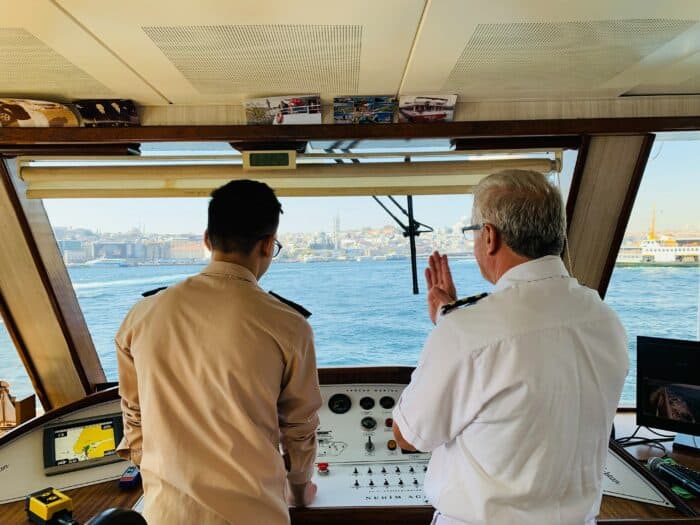
Most people feel a yacht has to be at least 60 or so feet in length before it’s considered a yacht. The longest yacht in the world is the Azzam which is just shy of 600 feet long. You can imagine that the captain of the Azzam has to deal with more than the captain of a 60 foot yacht. As such, the Azzam’s captain is probably making more money.
Size of the vessel is arguably the biggest factor in what a yacht captain gets paid. You can divide yacht sizes up into three categories as it relates to yacht captains to get a better idea of the pay involved.
I’ve included some survey data here taken from Dockwalk and this was gleaned from information provided by 476 different yacht captains to give you a pretty good idea of how much a captain makes at every single yacht size.
Junior Captain
A Junior Captain would be captain of the smaller yachts that rank in around 60 feet up to 100 feet. Many yachts of this size may only have one or two crew members on board to help operate them. The captain of a smaller yacht like this could expect to make perhaps $45,000 to $98,000 per year or more. Obviously this can change on a case by case basis depending on the specific duties expected of the given captain.
These smaller yachts have less involved operations and are, in general, easier to run which is why the captain of a yacht of this size would likely get paid less.
Survey data from 2021 shows that most captains working on yachts in this size range average just over $8,000 per month. On the low end of that scale were yacht captains pulling in about $3,100 a month while the highest paid make around $20,000 per month. Yacht captains can also pull in gratuities as part of the crew and that averages out to around another $1,300 per month.

In the middle is a Captain of vessels that range from 100 feet all the way to 170 feet which is superyacht territory. These vessels can include a crew of several different members and will require more organization and skill to maintain and run smoothly. At this size a Captain can expect to be making anywhere from about $80,000 per year up to $180,000.
Survey data from 2021 shows that, up to 140 feet, a superyacht captain can average about $10,100 per month. The lowest paid were making about $1,175 per month while the highest were again making around $20,000. You also pull in gratuities at this level that average just under $1,400 per month.
Yacht captains working vessels between 140 feet and about 190 feet were averaging $14,100 per month. At the low end of that scale you’re looking at $5,750 and it can go all the way up to $34,500 per month, so this is some serious money. If it’s a charter yacht, tips can reach nearly $3,000 a month as well.
Senior Master
A Senior Master is the captain of any yacht over 170 feet. This gets into megayacht territory at 200 feet and even gigayachts at 400+ feet. These captains have to be highly skill and managed not only massive crews that can include dozens of people, but a lot of more complex technology than the smaller vessels may be making use of.
Because of the demands of this job, it’s clear that pay grades increase substantially as well which is why captains at this level can make between $140,000 and $300,000 every year.
Survey data shows that between 180 feet and 240 feet, yacht captains had an average salary of just over $16,100 per month in 2021. That means a starting, low end salary of $9,200 per month which went all the way up to $23,250 per month. Tips closed in at just under $3,700 per month as well.
From 240 to 280 feet a yacht captain averaged just under $15,500 in 2021 which you’ll notice is oddly under the average for the next size down. The low end of the scale here paid just under $7,500 per month which is a good deal lower than the low end for slightly smaller vessels. On the high end captains were making $20,125. For whatever reason, yachts in this range just don’t pay as well as those in the 180 range, on average.
When you head to 280+ feet, the largest that the survey data was able to account for, yacht captains average about $20,500 per month. Remarkably, the low end here was $9,200 which is the same as vessels a full 100 feet shorter. However, on the high end some of these captains are making $32,000 per month. Factor in gratuities and that’s another $5,600 on average.
How Yacht Captains are Paid

Most yacht captains get paid on a monthly basis. There are freelance captains who may also work under different payment terms. One such captain who responded to the survey charged $38 per hour as a flat rate. If they were chartered for a week, that would work out to $6,384 per week assuming you expect your captain to be ready for duty 24/7 on the water.
What do the Yacht Crew Members Make?
Like the captain, crew members can make more money on larger vessels and their experience in the business and time at sea can also factor in. But in general, here are some average numbers for crew salaries to put things in perspective.
First Officer
On a smaller yacht under 100 feet a first officer may earn up to about $65,000 per year. On a much larger yacht over 200 feet they could expect $100,000+
Second Mate
The bosun mate on a smaller yacht can start earning around $45,000+ per year. On a larger yacht over 200 feet this can be bumped up to well over $65,000 per year.
At the low end of the scale, on a smaller yacht a deckhand may make around $40,000 per year. However, on a much larger yacht they could potentially earn up to $65,000 per year.
Chief Engineer
A chief engineer on a small yacht may earn as much as $80,000 per year or more. On larger yachts that top 200 feet this can get closer to $150,000 per year thanks to the much more complicated machinery they need to deal with. They may also need to repair things like jet skis.
Assistant Engineer
The assistant engineer is obviously not earning what the chief does but they can still start at $45,000 per year or so. On large yachts this can reach over $85,000.
Chief Steward
The purser on a smaller yacht can make between $54,000 and $60,000. On the larger vessels this salary can increase to over $80,000.
A steward may make as much as $42,000 on some smaller yachts while that could increase to as much as $65,000 or more on larger vessels.
A trained chef can expect $60,000 on a small yacht and that can reach well over $105,000 on larger yachts. Many larger luxury yachts also bring in Michelin starred restaurant chefs to work for limited times and these chefs can earn quite a bit more.
On yachts up to 100 feet, a cook can look forward to making perhaps $54,000 to $60,000 per year. On the high end of the scale, a cook on a large yacht over 200 feet might make over $84,000 per year.
Motor Yacht Captains vs Sailing Yacht Captains

On smaller yachts, the salary difference between sailing yachts and motor yachts captains is often negligible or non-existent. As vessel size increases, the salary of a sailing yacht captain will tend to outpace that of a motor yacht captain, sometimes by a lot. Larger sailing yachts are often harder to come by and require more specialized knowledge so a captain able to handle a 200 foot sailing yacht is rather rare.
Jeff Bezos currently has the largest sailing yacht in the world at 416 feet while, as we said, the largest motor yacht is the Azzam at almost 600 feet. Though Bezos’ yacht has yet to hit the sea officially, we can assume her captain will be well compensated.
The Bottom Line
Because yacht captains may perform a wide range of duties for their clients, their pay range can vary widely as well. The yachting industry is nothing if not malleable about things like duties, yacht operations and salary ranges. As long as a captain is skilled and experienced they can expect to make a decent salary regardless of the size of the vessel, but it will definitely increase considerably as the yacht size increases. As such, yacht captain salaries can range anywhere from $3,100 per month to $32,000 per month.
My grandfather first took me fishing when I was too young to actually hold up a rod on my own. As an avid camper, hiker, and nature enthusiast I'm always looking for a new adventure.
Categories : Yachts
Leave a Reply Cancel reply
Your email address will not be published. Required fields are marked *
Save my name, email, and website in this browser for the next time I comment.
More in Yachts

Lonian Yacht: An Insider's Guide

A Closer Look at the Madsummer Yacht
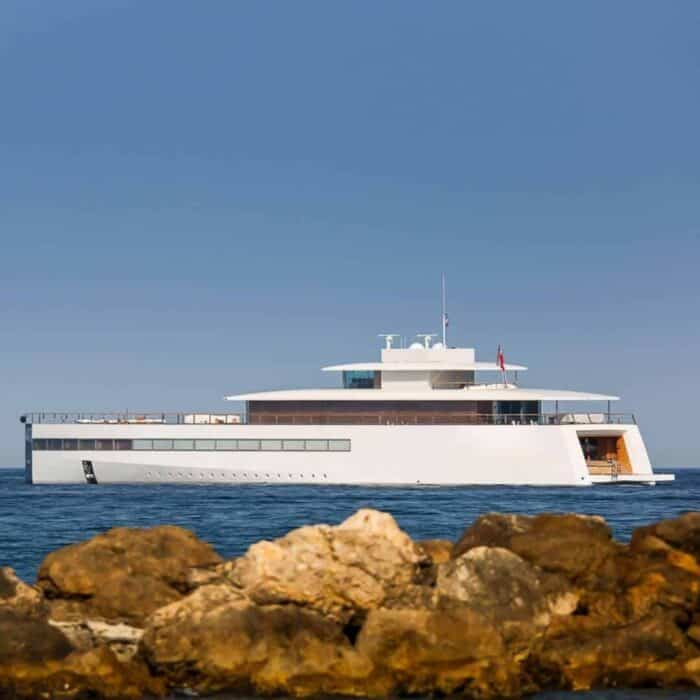
Your Insider’s Look at Steve Jobs’ Yacht Venus

Your Insider’s Guide to the Aviva Yacht

The People’s Poncho Review and Ratings

Oru Lake Kayak Review

What Is A Gunwale?

131 of the Best Hawaiian Boat Names

167 Patriotic Boat Names
About boatsafe.
Established in 1998, BoatSafe is your independent guide into the world of boating, fishing, and watersports. We provide expert insights and detailed guides to help you find products tailored to your needs and budget.
Contact Boatsafe
- Address: 4021 West Walnut Street. Rogers, AR 72756
- Phone: (479)339-4795
- Email: [email protected]
Site Navigation
- How We Test
- Corrections Policy
- Privacy Policy
- Terms & Conditions
- Editorial Policy
- Affiliate Disclosure
Our Reviews
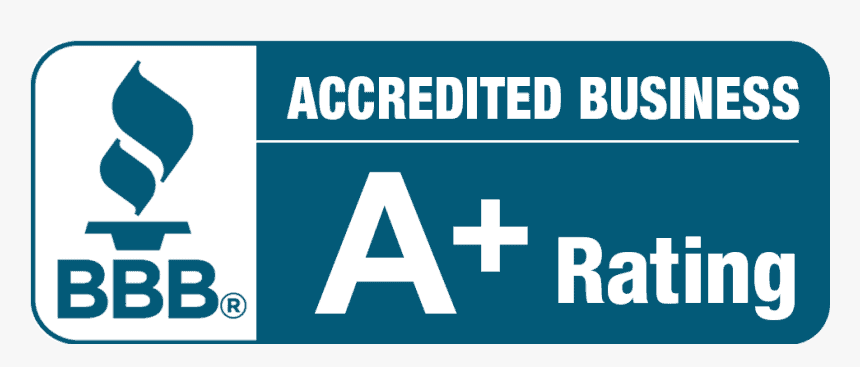
All content is © Copyright 2024. All rights reserved.

How Much Do Yacht Captains Make? (Numbers & Examples)
Do you love boating? The wind and the water? The smell of sunscreen and sea salt? The feel of a powerful machine beneath your hands?
If boating is your passion, you might be wondering how you can do it for a living. Well, you might be in luck.
How Much Do A Yacht Captain Make?
The captain of a yacht typically makes between $60,000 and $150,000, depending on the size of the yacht and his/her experience. On top of that, charter yacht captains will typically earn 10-15% of the price of the charter from tipping.
Here’s everything you need to know about how much a yacht captain makes.
Table of Contents

How Much Money Do Yacht Captains Make?
One of the major determining factors of salary for yacht captains is the type of license you possess, the type of yacht you work on, and your level of experience.
Yacht captains often get paid a base salary. It will typically be in the size of $60,000 to $150,000.
In addition to a base salary, they can also get:
- health insurance
- flight expenses
- paid vacation
- training reimbursement
If your position requires you reside on the vessel you are also likely to be supplied with food and sundries.
Tips are often earned on yachts that are available to be chartered.
Here’s our guide to how much you should expect to earn from tipping as a crew member on a yacht .
Different Ranges of Salaries for Yacht Captains
- If you are a captain that is operating boats that range from 60 to 100 feet, the salary range would be between $48,000 and $100,000 per year.
- A captain who operates vessels between 100 and 130 feet, can earn a salary between $90,000 and $140,000 per year.
- A captain who would operate a vessel that can range between 130 to over 160 feet, could earn anywhere between $120,000 and $180,000.
- If the vessel that you operate falls between 160 to 190 feet, your salary could be between $150,000 to $210,000.
- If you operate a vessel that is 190 feet or more you could make over $200,000 per year.
Variations to these averages can depend on factors such as owner/guest use, the qualifications that are required with the position, and the itinerary of the vessel.
How Do I Become A Yacht Captain?
After looking at the earning potential, you are probably ready to sign up! However, you cannot just get on a yacht and become the captain.
To become a yacht captain, you first need to obtain a license. There are a few different levels of Captain’s licenses and you should attend the class that will give you the highest leveled license that you can qualify for.
There are two main license types that you can get. These are the “Six-Pack Captain’s License” or the “Master License”.
The Six-Pack Captain’s License would allow you to captain a boat with up to 6 paying passengers plus crew. The vessel can only weigh 100 gross tons or less.
This license is generally used for vessels that engage in charter fishing, scuba diving, or tour cruises.
This course includes topics such as the navigational rules, navigation aids and chart plotting, electronic navigation, characteristics of weather systems, and lifesaving equipment and safety.
To qualify to get this license you need at least 360 days of documented experience in the operation of vessels with 90 of those days being within 3 years of getting the license. You also have to complete the test that is given.
Any experience that was gained before the age of 16 cannot be used.
The Master License would allow you to captain a boat with more than 6 paying passengers.
Any vessel that is authorized to carry more than 6 paying passengers requires a Master license. Boats that require this type of license can include ferry boats, harbor tour boats, whale watching vessels, and water taxis.
For the Master License, the topics include everything listed for the Six-Pack license but also includes basic seamanship skills, tides and currents, marine radio operation, pollution prevention, vessel handling skills, and emergency procedures.
Requirements for a Master License depending on which type of Master License you get.
These include:
- Master Inland: 360 days underway experience since age 16. 90 of those days must be within 3 years of getting the license. Completion of course and test.
- Master Inland/OUPV: 360 days underway experience since age 16. 90 of those days must be within 3 years of getting the license. 90 days must be outside the boundary lines. Completion of the course and test.
- Master Inland/Mate N.C.: 360 days underway experience since age 16. 90 of those days must be within 3 years of getting the license. 180 days must be outside the boundary lines. Completion of the course and test.
- Master Near Coastal: 720 days underway experience since age 16. 90 of those days must be within 3 years of getting the license. 360 days must be outside the boundary lines. Completion of the course and test.
Other Requirements Include:
- A Transportation Workers Identification Credential (TWIC Card).
- You must be 19 years or older.
- Pass a physical examination.
- Pass a drug test.
- CPR/First Aid Training.
In addition to your license, you can also add endorsements.
These endorsements include a towing endorsement that would allow you to assist vessels in need for a fee, or sail or auxiliary sail endorsement which would allow you to operate a sailing or auxiliary sail vessel.
These endorsements are not required but may help you find a wider variety of jobs.
You also need a captain’s license if you are choosing to be a fishing guide. A fishing guide is the captain of a fishing vessel that holds paying passengers.
What is the Work Schedule Like for a Yacht Captain?
A six-figure salary can come with hard work and high levels of responsibility.
While a yacht owner might only utilize their vessel between 6-8 weeks a year, you will most likely work all year.
Your average year could consist of between 6-8 weeks of work with the owner, 10-12 additional weeks of work if the vessel is chartered, and another 8-10 weeks spend moving the yacht between ports.
The job duties of a yacht captain can include:
- The ultimate safety of the passengers, crew, environment, and vessel.
- Following the instructions of the yacht’s owner.
- Crew hiring and dismissal as well as general personnel management.
- Training and coaching the rest of the crew.
- Legal and regulatory compliance.
- Navigation including plotting a safe course, following the plotted course, docking and departing.
- Management of the ship’s maintenance and upgrades.
- Management of the vessel’s finances, porting options, and other accounting.
- Negotiating for goods and services for the vessel.
There are personality traits better fitted to this job than others.
The ideal personality traits of a captain include:
- A calm personality especially in an emergency situation.
- Superior leadership, communication, and management skills.
- Diplomacy skills.
- Organized and methodical behaviors.
- Knowledge of other languages and cultural sensitivity.
In addition to these personality traits you should also have the following skills:
- Boat handling and navigation skills that can come from acquiring a license.
- International Safety Management (ISM) and International Ship and Port Security (ISPS) knowledge.
- Maintenance and engineering/troubleshooting experience.
- Financial management skills.
- The proper licensing.
The captain of a yacht is more than just a manager of people and assets. They are the manager of an experience. It is the captain’s job to run the vessel according to owner preferences to ensure the best experience.
The ultimate goal of the captain and the crew should be the happiness and experience of the owner and his guests.
Once the owner of the vessel describes what type of yacht he wants to own and how, when and where they would like to use the vessel, the rest of the management is often clearly defined.
It is up to the captain to maintain these standards and stay within the boundaries set forth by the owner. After all, without an owner of the vessel, the captain would not have a job.
The captain should also concern himself with the safety of all the passengers, other vessels, the environment they are in, and the vessel itself.
How Much Money Does It Cost to Run A Yacht?
For an average mega yacht that operates with 12 crew members, your expenses for the operation could be anywhere between 4 and 10 million dollars.
This budget is based on where your yacht is moored, whether your yacht is available for charter, and where the travel destinations are.
Making these decisions can be the responsibility of a management company or can fall to the captain of the vessel.
These decisions include all aspects of the budget, what charters to take, where to station the vessel between charters, when to service the boat, and where to get it serviced when you do.
If you are intending to own a yacht and run it, in addition to the crew and the above expenses you will also be looking at spending money on food, drinks, and other amenities that are needed while on your voyage.
Overall, Yacht owning is an expensive hobby. One of the biggest expenses is the pay and benefits for the crew.
If you work on a yacht you should have no trouble turning your passion into a prosperous career with high earning potential.
Click to share...

Do you operate a yacht? Our app is perfect for you
Super yacht captain salary - how much you should be earning.
Being the captain of a luxury vessel can often be very rewarding. Of course, the money you receive is directly parallel to your experience, which enables you to undertake more responsibilities .
Earnings can differ from captain to captain, as the salary is never set in stone. It depends on the size of the yacht, your at-sea experience, your ability to command a crew efficiently, and even the tipping. As such, it is often hard to understand how much money you should be earning, and the numbers tend to differ from source to source (try Googling it!).
Naturally, you might be looking for more concrete indications regarding the salary you should be earning. This is exactly why we wrote this article! Whether it is the “expected salary” question in your job application, or simply personal research for industry averages, we’ve got you covered!
In this blog post, we break down all the factors that determine a super yacht captain salary and help you understand how much you should be earning.
Table of contents
Superyacht captain salary tiers
Calculating the salary of a yacht captain, what is the average yacht captain salary, chartered vs private yacht captain salary, additional benefits for yacht captains.
- Wrapping Up
As the length of your commanding vessel increases, so does the number of tasks and responsibilities. The complexity of your role and requirements vastly escalate as you go bigger, but so does your salary.
In short, a super yacht captain salary is broken down into several tiers, which are divided based on the size of the vessel. Generally speaking, here are the salary guidelines you should be looking at:

Note 1: The salary fluctuation within the tiers indicates the captain’s license level, experience, and longevity.
Note 2: These numbers represent the salary without any additional perks, which we discuss in the following chapters.
Many might think that the income of a captain is very rewarding, especially when comparing the salary with other, high-level niche professions.
However, when calculating a (super) yacht captain salary, you need to take the following into consideration:
- 24/7 onboard. Captains spend all of their time on the vessel. They hold a position of responsibility even when not actually working. The salary should therefore reflect the increased number of work hours.
- Salary taxes. For most yacht captains, one of the biggest benefits of the job is that your income doesn’t get taxed. If, however, you are paying taxes in a particular country (e.g. freelance rental boat captains), income tax applies. This can take a huge bite from your profits.
- The level of experience. Captains are often split into three categories based on their level of experience: Junior captain, captain, and senior master. It is this experience level that both certifies and qualifies them to command larger vessels.
Therefore, you need to ask yourself the following questions before you decide on the salary you should be looking at:
- How much is my time worth, given my 24/7 employment and responsibilities onboard?
- How are my tax obligations structured and how will these affect my salary?
- Based on my experience and time at sea, am I more prone to receive the low or high-end of the salary tier I belong in?
For example, a junior captain that gets the opportunity to command a 25-meter yacht and has no tax obligations could see a €6,000 salary as a great opportunity to earn well, while gaining more experience.
On the contrary, a more experienced captain with additional certifications that needs to pay taxes is more likely to request €10,000 per month for the same job opportunity.
According to YPI CREW salaries , a tool that estimates the industry average salary of yachting-related positions, 446 captains were surveyed to determine the average salary of a captain based on the tiers described above.
Before looking at the findings below, make sure to also review the limitations of the survey, as well as the different variables that were explored.
Highest average salary - The results of the study indicate that permanent contractors that command motor yachts of a length between 81-100m had the highest average salary, which ranks at €18,000 per month. If you’re looking for the high-end, superyacht captain salary, this is it.
Lowest average salary - Junior captains placed at both sailing and motor yachts smaller than 35m in length receive an average salary of €5,500 per month. This amount mostly refers to yacht captain salaries that are not yet qualified for larger vessels.
All other tiers fall somewhere in the middle and the average salary differs based on two factors:
- Whether the captain operates on a chartered vs private vessel
- Whether they hold a permanent position or are in rotation
As you can see, at the higher and lower ends of the spectrum, permanent captains of private vessels tend to earn more, while mid-range categories have a higher degree of fluctuation.
Note: M.Y. Captains refers to Motor Yacht Captains. S.Y. Captains refers to Sailing Yacht Captains.

Source: ypicrew.com
As you can see from the survey conducted by YPI CREWS, one of the variables that determine a captain’s salary is whether the yacht is chartered or privately owned.
When it comes to charter yacht captain salary (rental yachts), and thus temporary employment, there are two categories you need to keep in mind:
- Individual, freelance captains get paid on a day-to-day basis. These types of captains are sought out and hired by yacht owners through middlemen.
- Contract captains that receive a monthly salary. This category refers to seasonal jobs where an agency pays the captain for multiple trips during his employment period.
Private yacht captains are responsible for a single vessel and are paid on a monthly basis, holding a full-time contract.
If you end up working on a charter, you may receive tips or gifts from customers after their trip is concluded. On the contrary, employment on a private boat will generally result in higher basic income but little to no tipping.
You may also notice that private boat captains with a full-time job will have a more “corporate” structure of employment, including recurring free days and paid holidays. Captains of charter boats have more flexibility and freedom when it comes to the employment opportunities they want to take on, but holidays are usually impossible or very limited, and often unpaid.
How much do yacht captains make? You should now have a better idea when it comes to the average salaries depending on the ship’s size. That being said, captains are able to enjoy more perks which translate into money:
- Yacht owners typically cover all onboard expenses, including food, uniforms, laundry, and even several types of insurance if the captain has full-time employment.
- Since captains live onboard, there are also no living expenses that need to be paid. Sure, the captain’s room may not be as spacious and comfortable as a 5-star hotel, but the money you save through this convenience makes it worthwhile.
- As mentioned previously, paid vacation days may also be offered depending on your contract type and the vessel’s schedule. For private yacht captains, it is typical to get 4 to 6 weeks of paid holidays per year and at least 1 free day per week.
- While charters may have less leniency for holidays, captains usually earn around 10-15% of the charter’s price in the form of tipping. If the vessel is larger, so is the crew, which means that the pot is split with them as well.
Finally, make sure to familiarize yourself with the local tax regulations to see if you can avoid paying taxes on your income. To increase your odds of earning a tax-free salary, it might be a good idea to consult with professional tax advisors specialized in the yachting industry.
Wrapping up
After analyzing the different tiers of the average superyacht captain salary, you should now have a better idea of the category you belong in. The information above enables you to determine the salary you can request, and help you negotiate where needed.
To summarize, here are the numbers you should keep in mind:
- 20-40m boat - €5,000 to €10,000 per month based on experience and certifications;
- 40-60m boat - €7,000 to €16,000 per month based on experience and certifications;
- 60-80m boat - €14,000 per month minimum , based on experience and certifications;
- 80-100m boat - €16,000 per month minimum , based on experience and certifications.
If your job offer happens to pay less than the numbers mentioned above, make sure to also review all the additional perks you receive, as there are often many perks and bonuses “hidden” within your contract. You can then use this information to renegotiate your salary and hopefully agree on better terms.
And that’s it! If you want to further improve your chances of getting paid what you’re worth, make sure to also structure a well-organized yacht captain CV . This will help agencies and yacht owners get a better understanding of your experience and management skills.

Yacht Crew Salaries
Average starting salary guidelines.
The crew salaries reflected below have been derived from placement records and job orders for both power and sail, reflected as an average, received by Crewfinders within the past year and may change without notice.
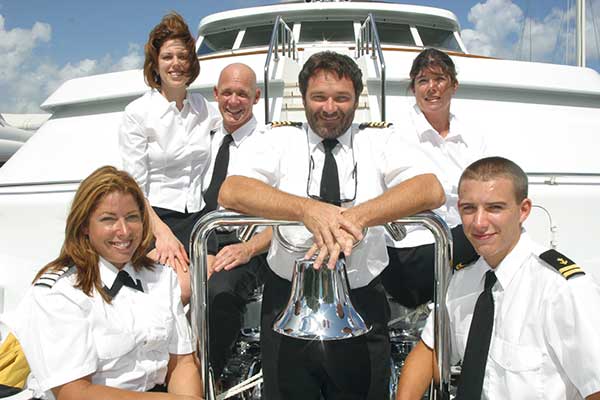
Below Deck Sailing Yacht Salaries Revealed and See How it Compares to Motor Yacht Pay, Plus Captain Lee Reveals Which Captain’s Job is Harder

The Below Deck crew members are raking in the cash, but which yacht crew makes the most?
In the first season of Below Deck Sailing Yacht , the crew made a total of $143,000 in tips for a six-week season, allowing each yachty to pocket $16,000. That’s a nice chunk of change for a mere six weeks, but that amount is considered mid-range compared to what other crews have received in the franchise. For instance, Captain Lee Rosbach ‘s season five crew took home $56,650 each in tips alone.
According to one yachting source, crews working on motors yachts, such as the ones featured on Below Deck and Below Deck Mediterranean , tend to make more in tip money , and they also earn higher salaries than sailing crews. Motor yachts require a higher level of formality, which is one reason for the difference in pay.
“Motor yachts are more formal regarding uniforms, owner and guest relations, and job requirements,” according to the source as reported by Showbiz Cheat Sheet . “That is why the salaries are higher.”
For example, a deckhand on a sailing yacht earns around $3,250 per month while someone with the same position on a similar size motor yacht will bring in about $4,000 per month. This difference also applies to the stewards as a motor yacht stew makes about $3,300 monthly while a sailing stew will earn around $2,500.
As for captains, it’s unclear what Captain Lee, Captain Sandy Yawn , or Captain Glenn Shephard are making. According to Luxury Yacht Group , yearly salaries range anywhere from $48,000 to $310,000, but the amount completely depends on experience and the size of the vessel.
Although Captain Lee likely receives a higher salary than Glenn, Lee claims that Glenn’s job is more difficult.
“Sailing vessels are a lot of work, but we usually have more crew on same size motor yacht, but I would say sailing on a big sailboat is harder,” he explained to a curious fan on Twitter on March 1.
Sailing vessels are a lot of work, but we usually have more crew on same size motor yacht, but I would say sailing on a big sailboat is harder. https://t.co/kDTlloKxE5 — Captain Lee (@capthlr) March 2, 2021
The Below Deck Sailing Yacht crew does have one big advantage, though. They are typically able to spend more time exploring the beautiful surroundings than those on a motor yacht.
Below Deck Sailing Yacht airs Monday nights on Bravo at 9/8c.
Photo Credit: Laurent Basset/Bravo

- Career Advice
- Salary Guide
- Digital Dockwalk
How to Get a Job as a Yacht Captain

Kate got her start in the yachting industry working as crew. She spent five years cruising the Bahamas, Caribbean, New England, and Central America, then segued that experience into a career in marine journalism, including stints as editor of Dockwalk and ShowBoats International .
The role of a captain is cut out for those with a deep love of the sea and who don't shy away from responsibility. If you’re an experienced first mate or a bosun itching to take the helm, here’s everything you will need to become a yacht captain...
The most common path to a yacht’s wheelhouse is by rising through the ranks in the yachting industry, starting on deck and building sea time, gaining boat handling and geographical experience, and accruing licenses. But even after the golden ticket is earned — that 500GT or 3,000GT Master license — you’ll find there is more to getting the job than the piece of paper. Most rising crew will get the ticket before they are ready to assume the responsibility. Here is what crew agents and yacht owners have to say about what it takes to be a superyacht captain...
What is a Yacht Captain?
Simply put, a captain runs the vessel, in some ways like a CEO runs a business. He or she shoulders all the responsibility on board and reports directly to the owner or their representative. “The successful captains are all excellent leaders, able to set a common goal for their crew, and ensure motivation despite arduous seasons and long hours,” says Deborah Blazy, who, as general manager of Lighthouse Careers in Valbonne, France (near Antibes), specializes in placing captains. “Important character traits are to remain calm at all times but also to have the right sprinkle of charisma to keep crew morale and standards high.”
What Does a Yacht Captain do?
Driving the boat is just a small part of a captain’s job — many say the easiest part. Captains also hire and manage all other crew on board, plan and execute voyages around the owner’s and charter guests’ expectations, organize repairs and maintenance, control costs, and adhere to all international, flag, and port state regulations — all while providing personable, first-class service, and maintaining the highest levels of safety.
So the role requires a captain to be much more than a navigator; he or she is also part project manager, accountant, mechanic, human resources manager, concierge, and, most of all, chief problem solver. As Blazy puts it, they should have knowledge of the perfect anchorage, but also “have a direct dial to the most prestigious restaurants and be able to book the prime tables last minute.”
On smaller vessels, the captain will pitch in to assist in all roles on board, from changing the oil to washing the dishes. On larger yachts it is much more of an administrative position.
- M/Y Artefact: On Board with Capt. Aaron Clark
What Qualifications Do I Need to Become a Yacht Captain?
The captain must hold a license that is commensurate with the gross tonnage of the vessel and approved by the flag state. In addition, the yacht’s insurance company needs to be comfortable with the candidate’s experience and license and approve the hire. This is understandable when you consider that the underwriter is the biggest financial stakeholder in the vessel — on the hook for the cost of repairs or settlement if the captain makes a mistake.
Here are the licenses you will need to hold to become a yacht captain:
Vessels < 200GT
- RYA Yachtmaster Offshore (with Commercial Endorsement)
- or RYA Ocean Certificate of Competence (with Commercial Endorsement)
- or IYT Master of Yachts < 200T
- or MCA STCW Master (Yachts) < 200GT
- or USCG Operator Uninspected Passenger Vessel License (OUPV/Six-Pack) < 100GT (U.S. Green Card holders can apply)
- or USCG Master Inland/Near Coastal < 100GT (U.S. citizens only)
- or USCG Master 200 Ton Oceans (U.S. citizens only)
Vessels < 500GT
- MCA STCW Master (Yachts) < 500GT Certificate of Competence
- or USCG Master 500 Oceans or Near Coastal (U.S. citizens only)
Vessels < 3000GT
- MCA STCW Master (Yachts) < 3000GT Certificate of Competence
- or MCA Merchant Navy STCW Master < 3000GT
- or USCG Master 1600GT (U.S. citizens only)
- or USCG Master 3000GT (U.S. citizens only)
Vessels > 3000GT
- MCA STCW Master (Unlimited)
- or USCG Master Unlimited Oceans or Near Coastal (U.S. citizens only)
- or Marshall Islands Master of Yachts Unlimited
When it comes to the USCG licensing, Capt. Ted Morley, chief operations officer of Maritime Professional Training (MPT) , notes that it’s “important to make the distinction regarding charter vessels, ocean routes versus coastal, and the number of passengers on board. The waters get murky when you talk about some of the other requirements — such as PSCRB for yachts with lifeboats, DP for vessels that are equipped, ECDIS, ARPA, and a host of other specialty requirements that many Flag and Port states will require of masters on vessels in particular service, areas, or equipment.”
What Experience Do I Need?
“I think a lot of mates with about five years of demanding sea experience and good work habits have the ability to be great captains,” says one owner, who has three large yachts.
The most important experience is time on yachts, as opposed to other types of vessels. “We have very little luck with a captain looking to join a yacht with zero yachting experience,” says Ian Pelham, director of Preferred Crew, a crew agency in Fort Lauderdale.
The yachting industry is quirky and far removed from the predictability of the commercial world. Pelham gives the example of a cruise ship, as he once ran a fleet personnel department for a cruise line: “A captain on a cruise ship has a number of perks, including a cabin steward who cleans the personal space of the captain, there will be mess stewards who will serve and clean up the crew areas for the officers. Generally there is solid rotation — you know exactly when you are to join and when you heading on vacation. When on vacation you do not get calls from the owner asking where you put the ‘good’ whisky when the cousins were aboard. On a yacht, even the big ones, the captain has to be ready to step in at any level, including cleaning up, to make sure the owner has a great time. Most commercial captains just have not had that kind of experience.”
Blazy adds, “[A commercial captain’s] experience is often best suited to the Passenger Code vessels over 3,000GT, where the duties and working conditions in terms of rotation are often similar. There is, however, a huge learning curve in terms of standards and customer expectations.” She recommends these captains gain experience on yachts before assuming the top role. “For the more junior candidates who are happy to start again from the lower ranks on board the yachts there is a big advantage; often they are bringing great transferable skills and relatively high tickets for the deck teams, and so are able to climb the ranks rapidly. Those with the ability to be flexible in terms of outlook and approach will always do well,” she says.
- The Best Superyacht Wheelhouses in the Business
What Do Owners Want?
“Owners are generally looking for someone who will give them the ultimate holiday experience while making them feel safe on board,” Blazy says.
When it comes to specifics though, each owner will want a captain that precisely fits with their vessel size and itinerary. “Different programs call for different personalities,” Pelham says. “I have seen captains who are extroverts, introverts, confrontational, compromising, joyful, serious, etc., who have each been very successful in their individual programs. I also believe that this is part of what makes a captain a fantastic fit for one program and a complete miss on another.”
Despite being some of the wealthiest people on the planet, most yacht owners care deeply about the costs, so financial accountability is a big part of being a successful captain.
“It’s a big responsibility for the captain to take care of the owner’s large asset. Good common sense is required,” says one large-yacht owner. “Fuel costs and dockage fees need constant awareness. Transiting the yacht at 12 knots instead of 22 knots from Nassau to Lauderdale protects the owner’s assets. Of course there are some owners who just don’t care about costs, but a majority do!”
This owner also expects his captain to spend time in the yard with the yacht, not consider it vacation time, in order to keep track of the yard’s billable hours, and to have some good mechanical knowledge so they can “withstand the salesmen/ consultants suggestions about replacing everything on your yacht.”
- M/Y Florentia: On Board with Capt. Andrea Franci
How Much Does a Captain Earn?
With the stress of responsibility comes monetary reward. A captain can earn an excellent salary, with longevity and vessel size generally having the biggest influence on just how excellent that salary is. But just as the yachting industry is unique, so is each boat and what it pays.
“(There is) no such thing as average, or industry standard,” maintains Pelham. “My team has placed a captain on a 35-meter paying more than $20,000 per month, day one, and on a 100-meter paying about $8,000 per month, day one. I know of captains earning around $4,000 per month and I know of at least one couple earning $30,000. The pay of the captain is completely dependent on what the owner and the captain both believe it is worth.”
Dockwalk’s Salary Survey does give some good guidelines though. In its most recent 2021 survey, crew agencies provided a range of salaries, from the low end on vessels below 80 feet: $5,000 to $10,000 per month; to the largest vessels over 280 feet: $23,000 to $28,000 per month. Numerous captains working on yachts from 60 to 179 feet also shared their salaries and the average from their responses in each vessel size category fell right in the middle of the range given by the agencies.
What is the Best Way to Land that First Position?
“Finding your first captain role is no easy task. There is always the stigma attached that you have not done it before and so are you capable?” Blazy says.
Pelham seconds this: “Our clients love to see that the captain has already done what they want them to do next. If the yacht is 50 meters, they want to see 50 meters on the CV. If they are planning a circumnavigation, they want to see a circumnavigation in their history,” he says.
- Where Next? Career Advancement for Yacht Captains
Of course, that isn’t good news for anyone looking for his or her first captain role. Pelham recommends emphasizing the experience on your resume that matches where you want to be. “Think about what you did as a mate on your previous yachts. Then pick those things that you will be doing as a captain on your next yacht, and highlight those aspects,” he says.
Blazy says the most common path on the bigger yachts is when the chief officer grows into the junior captain role, “moving forward steadily in terms of drive time and responsibility, covering for the senior captain while he is away. There is a mix of confidence and humility that is at play, and the timing will depend on the individual person and the owner’s expectations.”
- Join the Captains' Club
More from Dockwalk
Most popular on dockwalk.
How Much Does a Deckhand Make on a Yacht? (Salaries)

Who doesn’t want to sail the high seas in the lap of luxury? Life on a yacht is the pinnacle of maritime leisure and relaxation so it’s definitely not something everyone can afford. But what if you were told you could experience life on yacht and get paid for it to boot? Welcome to a day in the life of a yacht deckhand!
Okay, so maybe you’re not going to be the guest of honor. But there are a lot of perks to being a deckhand. Of course, the salaries might not be too grand, however yacht guests have been known to give eye-popping tips. Wondering how much does a deckhand make on a yacht? Here’s the low-down.
Salary Range for a Yacht Deckhand
The salary of a deckhand on a yacht depends largely on the size of the vessel. For the most part, people will only hire a deckhand if their boat is in the superyacht category. That means a yacht that’s over 80-feet long. However there are some private yacht owners who hire a crew even if they’re operating something smaller.
As you might expect, a deckhand salary will increase as the size of the yacht increases. That means the bigger the boat, the bigger the bucks. It’s also worth considering your level of experience and designation on the boat.
There are three different deckhands found on a yacht. The first is the junior deckhand, the second is the deckhand, and the third is the lead deckhand. These job levels receive varying salaries, with each one earning more than the last.
Junior Deckhand
Junior Deckhands on a yacht earn around $2,000 to $3,000+ per month
Yacht Deckhands earn between $2,800 to $3,500+ per month
Lead Deckhand
Lead Deckhands earn roughly around $3,500 to $4,000+ per month
What’s nice about the deckhand job is that you get to work closely with the guests on the boat. That means you might be rubbing elbows with celebrities, politicians, and other prominent public figures. The deckhand also gets the most tips on board, so that salary might not be your only income stream.
Interested in Other Deckhand Salaries? See How Much These Earn:
- Barge Deckhand Pay & Salary
- How Much Deckhands Make on Deadliest Catch
- How Much Does a Tugboat Deckhand Make?
- Tuna Boat Deckhand Salaries
Salaries for Private vs Charter
If you’re looking to snag a job on a yacht, it’s important you know the difference between a private and charter yacht. The private yacht is essentially a vessel that’s used strictly for the benefit and enjoyment of the owner. So the only guests you’re going to be seeing are the ones they invite on-board such as their family and friends. You answer directly to the owner and they also pay your salary.
The charter yacht is basically a yacht that’s rented out to a variety of companies like holiday makers and corporations who want to profit off of the yacht by selling cabin tickets or vacation packages. Charter yachts see a lot of guest variety, letting you deal with and serve lots of different people.
Generally speaking, charter yachts pay less in salaries because they know you’re going to be making more tips. On average, the tips can amount to around 20% of the charter cost, and is split between the crew members by the captain.
On a private yacht, you’re much less likely to get a tip but they are willing to pay more. Private yacht owners also tend to provide bonuses if you rub them the right way, so it’s really a matter of playing your cards right and pleasing your employer.
Yacht Deckhand Job Description and Responsibilities

Okay, so maybe the money has made you seriously consider starting out as a yacht deckhand. But do you know what the job entails? There are quite a lot of responsibilities lined up for a yacht deckhand, and these include:
All hands on deck, and that means you, deckhand. The job of cleaning the yacht is all a part of the deckhand duty. You’re going to mop the messes, clean up after rowdy guests, and essentially make sure that everything stays clean and tidy to maintain the luxury feel.
But it’s more than just mopping and tidying. A deckhand also has to polish chrome railings, wipe glass panels to remove smudge marks, clean communal toilets, and maintain public areas after each use. You’re also going to have to clean unseen features of the boat like the inner machines and equipment that hide under the deck.
Basic Repairs
A broken air conditioner in stateroom number two? That’s your business. Minor and basic repairs of features around the boat are the deckhand’s responsibility. So expect to change a light bulb or two while you’re on board.
You should also have some basic knowledge on things like painting, caulking, filling, and varnishing, which you might have to do depending on the conditions on the yacht. Of course, for bigger maintenance problems like major repairs of equipment and machines, the engineers will be mostly responsible.
Safety Protocol Implementation
There’s a lot that could go wrong on a yacht. Slip and fall accidents, choking, and drowning -- these are just some of the dangers that await yacht passengers. That’s why all deckhands have to have some basic knowledge on life support and first aid.
But to prevent the need to use these skills all together, the deckhand makes sure that all passengers are observing proper safety protocol. That means reminding them when to wear a life jacket, and politely informing them of any potentially dangerous activity they might be doing on board.
Water Sports Assistance
Whether it’s water skiing or jet skiing, the deckhand is there to help. They’re the guys who handle the lines, deploy the water toys, and assist the guests for safe fun and enjoyment. They’re basically the all-around assistants on the yacht, doing what they can to maintain safety and keep the guests as comfortable as possible.
Not all yachts will have water toys though, but those that have them will require more than a few deckhands. On larger super yachts , lead deckhands are responsible for designating deckhands to different parts of the boat so that everyone gets the assistance they need.
Deckhands are the guys who see the deck most often. They’re the first to know when something is damaged, the first to know when guests need something, and the first to know when danger might be up ahead. So they should also be responsible for communicating with the rest of the crew.
These guys are in constant communication with the captain, engineers, stewards and stewardesses to maintain smooth sailing. They relay important information to the higher ups in order to curb potential accidents and to make the guests requests known in case they were approached for that specific purpose.
What Training is Required?
You can’t be a deckhand just like that. There are requirements and certificates you have to comply with to become fit for service. These training programs provide the necessary knowledge and skills to improve your performance and equip you for the unique challenges of the yacht deckhand job.
Certification of Medical Fitness
This is a compulsory requirement for all individuals hoping to apply as a deckhand. The certification of medical fitness confirms that you have no serious medical conditions that could affect your work on board. Remember, a huge chunk of your job is to keep everyone safe. If you have any conditions that require unique care, then you might not be able to fulfill your responsibilities.
Standards of Training, Certification and Watchkeeping
This is another requirement for all of those applying for a spot on a yacht crew. The STCW provides basic training on fire fighting and prevention, personal safety and social responsibility, security awareness, sea survival, and emergency first aid. The goal of the training is to make sure the entire crew is prepared to face potential hazards as they arise.
Deckhand Training Course
While this one’s not required, it does help improve your chances of getting a job. The deckhand training course provides you all the basics of the job, teaching you the ins and outs of the work your occupation entails. You can also add on other courses like a personal watercraft certificate that lets you safely operate and deploy things like jetskis.
What Type of Person is Best Suited to the Job?
Not everyone is a fit for the deckhand occupation. That said, if you think you have most of the following qualities, you might find the work to be a good choice if you’re considering starting a career on the sea:
- Works well in a fast-paced environment
- Handy with tools
- Good problem solver
- Patient and courteous
- Takes well to instructions and commands
- Team player
- Willingness to learn
- Works well under pressure
- Can work with minimal supervision
- Good time management skills
- Physically fit
- Takes criticism and correction well
A deckhand is one of the lowest ranking jobs on the deck, so expect to get quite a lot of correction from your superiors. But aside from that, your guests might also find reason to criticize and correct your work. So it helps to be patient and thick-skinned if you plan to work in this demanding industry.
All in a Day’s Work
How much does a deckhand make on a yacht? Not a lot if we’re talking salaries, but those tips might make up for the meager pay. And when you consider the luxury facilities and the potential of rubbing elbows with the rich and the famous, it’s easy to see that the life of a yacht deckhand is anything but boring.
Related Posts
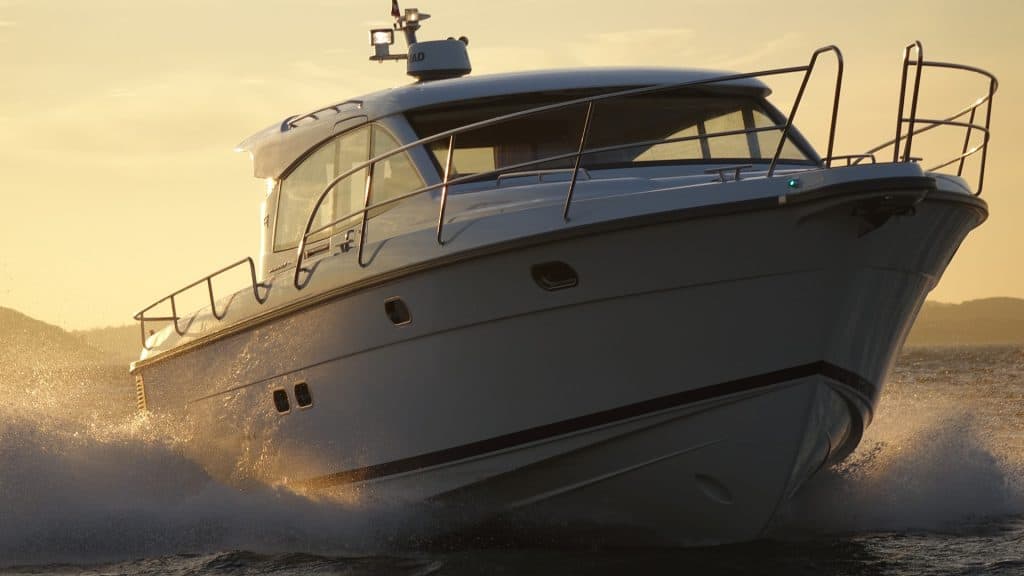
How Long Can a Yacht Stay at Sea? All You Need to Know

When Does a Boat Become a Yacht or Superyacht? (Sizes)

What to Wear to a Yacht Party: Business or Leisure
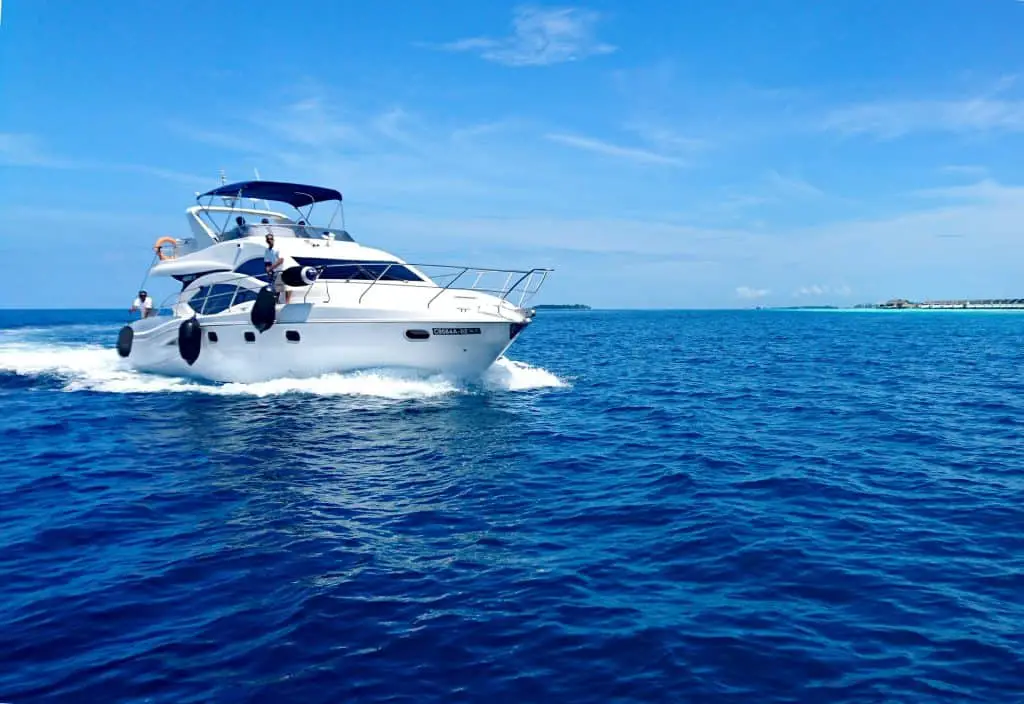
Can I Pilot My Own Yacht? Qualifications & Licenses

COMMENTS
The Results of the 2023 Salary Survey. Our annual salary survey provided some unprecedented insights to what captains and crew earned in 2023. The yachting industry is slowly returning to normal in the wake of the pandemic. Yachts are back to work around the world and many new ones are in the pipeline thanks to the surge in popularity the ...
May 25, 2023. It's no secret that the impressive yacht crew salaries attract most people into the exclusive yachting world. Junior deckhands or stewardesses can earn starting salaries of $3000 per month. With a few years of experience and some courses to back you up, this amount moves up towards $4000-$4500 per month!
In our biggest salary survey yet, we have uncovered detailed insights into Superyacht Captain salary and leave packages. Almost 300 Captains responded across a range of yacht sizes from sub-30m to 100m+. In addition to average pay and leave, pay rise and bonus activity, the 20+ page report also compares Captain and Chief Officer experience ...
No yacht that responded under 39m offers rotation. 36 Captains are earning over 20k a month, the vast majority of which are on purely private yachts. 23% of Captains on yachts 40m-49m have a full rotation. This takes a big jump to 53% of yachts 50m -59m. Full rotation peaks at 83% on yachts over 100m. The average is 63% of Captains on yachts ...
Average monthly salary : 60ft (18m) à 2,200€ - 3,700€. During the captain's absence, the Chief Officer / First Mate will have the captain's good management and interpersonal abilities and outstanding experience and procedures in ISM and ISPS. The CEO will be someone with a solid history in deck work from prior practice with Deckhand ...
The report reveals that on sub-98-foot (30-meter) megayachts, chefs earn 4,000 to 4,500 euros ($4,400 to $4,900) per month. These chefs tend to have no yachting experience, too, and handle all tasks solo. The biggest megayachts, meanwhile, exceeding 328 feet (100 meters) pay about 8,000 euros ($8,700) per month.
Master 170ft - 200ft + $12,000 - $25,000+ ... vital part of the AV/IT experience onboard a yacht. This specialty position could be held by a deckhand onboard with minimal experience, up to ... determination to learn the trade and do the long hours that are required to earn promotion within the industry . www.luxyachts.com 1362 SE 17th Street ...
Responsibilities include: Primary safety officer for the yacht and all passengers and crew. Supervise and manage all operations on deck. Bridge watches on passage. Passage planning and navigation. There may be additional mates on larger vessels, these 2nd, 3rd, etc. mates have similar responsibilities on rotation.
Please note that they an indication only of starting salaries and the actual salary will vary depending on multiple factors. Many elements need to be taken into consideration with r. Discover the ultimate yacht crew salary guide at YPI CREW. Get insights into competitive salaries for yacht crew members worldwide. Plan your career today!
Captain. 100 ft - 170 ft. $84,000 - $180,000. Junior Captain. 60 ft - 100 ft. $48,000 - $98,000. Additional parts of the salary package include bonuses, health insurance, flight expenses, paid vacation, training and certification cost reimbursement, and uniforms.
Superyacht Captain salary - €4,000 to €16,000+. A Superyacht Captain is responsible for all activity onboard, crew safety and well-being, and the experience offered to guests. The Captain is the owner's main point of contact on the yachts; whether things are going right or wrong, it can be a highly pressured and stressful job.
Project Management certification or Management degree. Limited experience in intended cruising area. Lack of experience on a similar size vessel. Yacht Senior Masters have 10+ years experience and are responsible for the safety of passengers, crew & vessel. They earn $168K-240K based on yacht size & experience.
In fact, superyacht salaries for head chefs range from €3,500 to €10,000 per month ($4,350 to $12,400), not always related to the yacht's LOA. Stews and stewardesses. Monthly chief stew salaries range from €3,000 ($3,700) on yachts closer to the 80-foot mark on up to €9,000 ($11,200) for the largest yachts afloat. Deckhands.
Yachts Between 60ft and 99ft. According to data from the 2021 Salary Survey, captains working on vessels between 60- and 99-feet were earning an average of $8,002.01 per month, with a range of $3,105 to $20,000 per month. The average monthly tips earned by captains on yachts available for charter in this range was $1,374.
The bosun mate on a smaller yacht can start earning around $45,000+ per year. On a larger yacht over 200 feet this can be bumped up to well over $65,000 per year. Deckhand. At the low end of the scale, on a smaller yacht a deckhand may make around $40,000 per year. However, on a much larger yacht they could potentially earn up to $65,000 per year.
How Much Do A Yacht Captain Make? The captain of a yacht typically makes between $60,000 and $150,000, depending on the size of the yacht and his/her experience. On top of that, charter yacht captains will typically earn 10-15% of the price of the charter from tipping. ... Master Inland: 360 days underway experience since age 16. 90 of those ...
The information above enables you to determine the salary you can request, and help you negotiate where needed. To summarize, here are the numbers you should keep in mind: 20-40m boat - €5,000 to €10,000 per month based on experience and certifications; 40-60m boat - €7,000 to €16,000 per month based on experience and certifications; 60 ...
A bosun working on a vessel upwards of 120 feet can expect to earn anywhere between $3,800 and $5,000 per month, according to the 2021 Dockwalk Salary Survey. On vessels upwards of 160 feet, a bosun's monthly salary can earn between $4,000 and $7,000+, while yachts above 260 feet will see a bosun earn around $7,000 or more.
Yacht Crew Freelance Positions Daily Salary: POSITION: 70' to 100' 100' to 130' 130' to 160' 160' to 190' 190' + Captain $400 - $450: $450-$500: $500-$550
According to Luxury Yacht Group, yearly salaries range anywhere from $48,000 to $310,000, but the amount completely depends on experience and the size of the vessel. Although Captain Lee likely receives a higher salary than Glenn, Lee claims that Glenn's job is more difficult. "Sailing vessels are a lot of work, but we usually have more ...
The most common path to a yacht's wheelhouse is by rising through the ranks in the yachting industry, starting on deck and building sea time, gaining boat handling and geographical experience, and accruing licenses. But even after the golden ticket is earned — that 500GT or 3,000GT Master license — you'll find there is more to getting ...
Lead Deckhand. Lead Deckhands earn roughly around $3,500 to $4,000+ per month. What's nice about the deckhand job is that you get to work closely with the guests on the boat. That means you might be rubbing elbows with celebrities, politicians, and other prominent public figures.
Base pay for yacht stewardesses depends on experience, qualifications, and the yacht's size. Entry-level stewardesses earn between $3,000 to $4,000. If you're considering a career as an entry-level yacht stewardess, it's important to understand the range of salaries that are typically offered in this field.